











Whenever I speak to Israelis, whether from the left or right, I hear the same refrain: Israel’s war in Gaza is against a vicious terror army that represents an existential threat; a terror army that invaded Israel and murdered parents in front of their children and infants
in front of their parents, brutally raped women, slaughtered babies, burned families alive, mutilated bodies, seized scores of hostages, all while gleefully filming these atrocities so they could show them off to the folks back in Gaza.
So, when Senate Majority Leader Chuck Schumer began his infamous speech last week by saying, “I rise to speak today about what I believe can — and should — be the path forward to secure mutual peace and lasting prosperity for Israelis and Palestinians,” I can only imagine the typical Israeli reaction.
“What are you talking about, Mr. Schumer? Are you watching what we’re watching?”
Given that the murderers of Hamas have promised to repeat Oct. 7, and given that Israel will never survive in the Middle East unless it shows there’s an enormous price to pay for slaughtering 1,200 Jews, the last thing on the mind of Israelis right now is creating “a path forward to secure mutual peace.”
But Schumer was undaunted. Even while recognizing the tremendous ob-













The media decided to defend Sen. Schumer’s attack on Israel — in which he calls to spare Hamas and create a terrorist state — by rushing out his “rabbi,” Rachel Timoner, to claim that “he said what most of us think” and “what the overwhelming majority of American Jews are saying to each other.”
“There’s been a real fear in the American Jewish community of criticizing Israel,” she told Politico. “He did something so great in breaking that silence.”
Timoner is an activist with such anti-Israel groups as J Street and T’ruah and co-founded the New York Jewish Agenda leftist organization alongside Sharon Kleinbaum (wife of American Federation of Teachers President Randi Weingarten), who faced an exodus from her “temple” (Manhattan’s Congregation Beit Simchat Torah) after saying Kaddish for Hamas terrorists.
Bringing out Timoner, the clergywoman of the leftist Congregation Beth Elohim near Schumer’s home in Park Slope, doesn’t help him. It reveals how bad he really is.
“Schumer has attended Timoner’s synagogue … for at least a decade,” Politico reported. “Timoner officiated [at] his daughter’s wedding, blessed his three grandchildren and buried his father.”
Let’s take a look at what Rachel Timoner has been up to.
Timoner took part in a recent anti-Israel “ceasefire” rally while whining that “continued war and Israeli occupation of Gaza will be an unmitigated disaster.”
She signed on to a letter by the T’ruah antiIsrael hate group which claimed that “there is no military solution” and demanded that Biden “ensure that Israel does not invade Rafah” and finish off Hamas.
In the past, Timoner had signed on to a T’ruah/J Street letter defending BDS.
Timoner, the author of op-eds such as “Fellow Dykes: We Must Be Both Pro-Israel And Pro-Palestine,” tries to have it both ways, but she picked her side.
The side of those who murder Jews.
This is what Schumer embraced as his guiding spiritual light.
A mere few weeks after the Hamas atrocities, Timoner was already scolding Israel in a sermon, warning that “killing thousands of Palestinian civilians will not bring back the Israeli civilians.”
She repeated the same message in a New York Times op-ed.
T’ruah summed up Timoner’s remarks at one anti-Israel rally as, “American Jews must tell our government we oppose this war and want an end to the occupation and a real political solution for Palestinians and Israelis.”
That’s the message Sen. Schumer took to the Senate. It’s not the message of American Jews, but of their leftist and Islamist enemies.
Continued from page 1
stacles, he insisted that “to achieve that lasting peace, Israel must make some significant course corrections.”
The problem is that when Israelis hear “significant course corrections,” it goes squarely against their survival instinct, which tells them: “Israel must finish with Hamas or we’re in big trouble.”
In other words, while Schumer in America is worried about obstacles to peace, Israelis in Israel are more worried about obstacles to victory against a cunning foe sworn to its destruction.
Schumer tried to say all the right things in his speech, to show his love for Israel and empathy for its difficult position. Much of the speech came across as logical and reasonable. He deserves credit for making a genuine effort to dissect a complicated mess and offer a path forward.
But as a longtime politician, Schumer must know that what matters in speeches is not so much what you say but what people take away.
And these are the two things people are taking away from his speech: One, given the unacceptable losses of Palestinian lives in Gaza, it’s time for Israel to pivot away from its current track of destroying Hamas and think of an endgame, and two, it’s time for Prime Minister Benjamin Netanyahu to go.
“The Netanyahu coalition no longer fits the needs of Israel after Oct. 7,” said Schumer, in the most controversial part of his speech. “The world has changed — radically — since then, and the Israeli people are being stifled right now by a governing vision that is stuck in the past.”
People can agree or disagree with Netanyahu, but what miffed so many supporters of Israel is that when an ally meddles in Israel’s electoral politics, it crosses a line. Schumer may well be right that “a new election is the only way to allow for a healthy and open decisionmaking process about the future of Israel,” but is that for him to say or push for?
While Schumer worries about obstacles to peace, Israelis are more worried about obstacles to victory against a cunning foe sworn to its destruction.
Schumer must have sensed that he had gone too far, as he subsequently tweeted a softer statement:
“The US cannot dictate the outcome of an election. That is for the Israeli public to decide. As a democracy, Israel has the right to choose its own leaders. But the important thing is that Israelis are given a choice. There needs to be a fresh debate about the future.”
In any case, people will take away that Schumer pushed for Bibi to go, that he’s against the relentless war track and that he thinks Israel should start thinking of a peace track.
All of that is fuel to Jew haters. At a time when antisemitism is rising to alarming levels, the last thing American Jews need right now is to have prominent Jewish politicians, especially those known to support Israel, publicly rebuke Israel during a war for its survival.
Across college campuses and elsewhere, Jews are under siege and watching their backs. Pro-Hamas mobs are using Israel’s defensive war in Gaza — the same war Schumer said needed “significant course corrections” — as their key ammunition to target Jews.
By piling on, Schumer, intentionally or not, has made American Jews less safe.





EDITOR’S NOTE: What follows is the full text of Senate Majority Leader Chuck Schumer’s speech on March 14, as released by his office.
Schumer’s most explosive expression — that Israel should hold new elections to replace Prime Minister Benjamin Netanyahu — is highlighted on the final page of this transcript.
While Schumer said much more — including thoughts that “came across as logical and reasonable,” as columnist David Suissa puts it on page 1 — it’s important to keep another of Suissa’s observations in mind: “As a longtime politician, Schumer must know that what matters in speeches is not so much what you say but what people take away.”
Irise to speak today about what I believe can — and should — be the path forward to secure mutual peace and lasting prosperity for Israelis and Palestinians.
I speak for myself, but I also speak for so many mainstream Jewish Americans — a silent majority — whose nuanced views on the matter have never been well represented in this country’s discussions about the war in Gaza.
My last name is Schumer, which derives from the Hebrew word shomer, or “guardian.” Of course, my first responsibility is to America and New York. But as the first Jewish Majority Leader of the United States Senate, and the highestranking Jewish elected official in America ever, I also feel very keenly my responsibility as Shomer Yisroel — a guardian of the People of Israel.
Throughout Jewish history, there have been many Shomrim, and plenty who were far greater than I claim to be. But nonetheless, this is the position in which I find myself now — at a time of great difficulty for the State of Israel, for the Jewish people, and for non-Jewish friends of Israel.
So I feel an immense obligation to speak and act.
I speak as a member of a community of Jewish Americans that I know very well. They are my family, my friends. Many of them are my constituents, many of them are Democrats and many are deeply concerned about the pursuit of justice, both in New York and around the globe. From the Talmud — Tikkun Olam, the call to “repair the world” — has driven Jews around the globe to do what is right.
We love Israel in our bones. What Israel has meant to my generation, within living memory of the Holocaust, is impossible to measure. The flowering of the Jewish people in the desert from the ashes of the Holocaust, and the fulfillment of the dream of a Jewish homeland — after nearly two thousand years of praying and waiting — represents one of the most heartfelt causes of my life.
And unlike some younger Americans, I remember how hard it was to achieve that dream. I remember clutching my transistor radio to my ear in James Madison High School during the Six Day War wondering if Israel would be pushed into the sea.
If the events of the last few months have made anything clear, it is that Israel is surrounded by vicious enemies, and there are many people around the world who excuse and even support their aims to expel and kill Jews living in their hard-won land of refuge.
I will never underestimate the grave threats Israel faces — and has faced — for the entirety of its existence, nor will I ever underestimate the oppression that the Jewish people have endured for millennia.
It is precisely out of this long-standing connection to, and concern for, the State of Israel and its people that I speak today about what I view are the most pressing existential threats to Israel’s long-term peace and prosperity.
After five months of suffering on both sides of this conflict, our thinking must turn — urgently — to how we can achieve lasting peace, and ensure prosperity and security for both the Jewish people and the Palestinian people in the Middle East.
I believe that to achieve that lasting peace — which we so long for — Israel must make some significant course corrections, which I will outline in this speech.

But first, let’s not forget how we arrived at this critical moment.
What Hamas did on Oct. 7 was brutal beyond imagination. I have sat with the families of those killed in the assault. I have seen the footage and heard the stories of innocents murdered and raped in heartless cruelty. As long as I live, I will never forget these images — this pure and premeditated evil.
Many of my family members were killed by Nazis in the Holocaust. Oct. 7 and the shameless response to support that terrorist attack by some in America and around the globe have awakened the deepest fears of the Jewish people — that our annihilation remains a possibility.
Today, over 130 hostages remain captive in Gaza. I am anguished by the plight of so many hostages still trapped deep inside Hamas’s network of tunnels. I pray for them, and for their families, who have inspired me with their tenacious advocacy to ensure their loved ones are not forgotten.
Many of them are Americans: Jonathan Dekel Chen, Hersch Goldberg Polin; and some are my constituents in New York: Omer Neutra, Keith Siegel and Itay Chen, who we tragically learned this week was brutally killed on Oct. 7 while serving near the Gaza border. Hamas still holds his body, as well as those of Americans Judi Weinstein and Gad Haggai.
I have sat with many of these families and I have wept with them. Each day that their loved ones don’t come home carries enough anguish and grief to last a lifetime.
I am working in every way I can to support the Biden Administration as negotiations continue to free every last one of the hostages. I urge every actor at the table — the Israelis, the Biden Administration, the Qataris, the Egyptians, and anybody else at the table — to continue doing everything possible to get to a deal. Hamas has been given a deal already. They should say yes. There is no time to waste.
My heart also breaks at the loss of so many civilian lives in Gaza. I am anguished that the Israeli war campaign has killed so many innocent Palestinians. I know that my fellow Jewish Americans feel this same anguish when they see the images of dead and starving children and destroyed homes.
Gaza is experiencing a humanitarian catastrophe — entire families wiped out, whole neighborhoods reduced to rubble, mass displacement, children suffering.
We should not let the complexities of this conflict stop us from stating the plain truth: Palestinian civilians do not deserve to suffer for the
Too many news agencies and newspapers give Hamas a pass by hardly ever discussing this shameful practice that is central to their fighting strategy, and this has led to an inaccurate perception of the harsh realities of this war. I believe stories that justifiably mention the loss of innocent Palestinian life should also note how Hamas uses civilians as human shields. It almost never happens. And I believe that every protest that justifiably decries the loss of innocent Palestinian men, women and children, should also denounce Hamas for their central role in the bloodshed.
When protesters decry the loss of Palestinian life, but never condemn this perfidy or the loss of Israeli lives, it confounds and deeply troubles the vast majority of Jewish and non-Jewish Americans alike who support the State of Israel.
Given that Hamas launched their attack on Oct. 7 to provoke Israel, given that Hamas sought the ensuing civilian toll in Gaza, given that Hamas wanted both Israelis and Arabs to be at each other’s throats… tensions on both sides have dramatically intensified.
sins of Hamas, and Israel has a moral obligation to do better. The United States has an obligation to do better.
I believe the United States must provide robust humanitarian aid to Gaza, and pressure the Israelis to let more of it get through to the people who need it.
Jewish people throughout the centuries have empathized with those who are suffering and who are oppressed because we have known so much of that ourselves. As the Torah teaches us, every human life is precious, and every single innocent life lost, whether Israeli or Palestinian, is a tragedy that as Scripture says, “destroys an entire world.”
What horrifies so many Jews especially is our sense that Israel is falling short of upholding these distinctly Jewish values that we hold so dear. We must be better than our enemies, lest we become them.
Israel has a fundamental right to defend itself, but as I have said from the beginning of this war — how it exercises that right matters.
Israel must prioritize the protection of civilian casualties when identifying military targets. I have repeatedly called upon the Israeli government to do so.
But it must also be said that Israel is by no means the only one responsible for the immense civilian toll. To blame only Israel for the deaths of Palestinians is unfair, one-sided and deliberately manipulative — and it ignores Hamas’s role in this conflict.
Hamas has knowingly invited an immense civilian toll during this war. Their goal on Oct. 7 was to provoke a tough response from Israel by killing as many Jews as possible in the most vicious manner possible — by raping women, executing babies, desecrating bodies, brutalizing whole communities.
Since then, Hamas has heartlessly hidden behind their fellow Palestinians by turning hospitals into command centers, and refugee camps into missile-launching sites. It is well documented that Hamas soldiers use innocent Gazans as human shields. The leaders of Hamas, many of whom live lives of luxury in places far away from the poverty and misfortune of Gaza, do not care one iota about the Palestinians for whom they claim to nobly fight.
It bothers me deeply that most media outlets covering this war, and many protesters opposing it, have placed the blame for civilian casualties entirely on Israel. All too often, in the media and at protests, it is never noted that Hamas has gone to great lengths to make themselves inseparable from the civilian population of Gaza by using Palestinians as human shields.
And now, as a result of these inflamed tensions in both the Israeli and Palestinian communities, people on all sides of this war are turning away from a two-state solution — including Israel’s Prime Minister Benjamin Netanyahu, who in recent weeks has said out loud repeatedly what many have long suspected by outright rejecting the idea of Palestinian statehood and sovereignty.
As the highest-ranking Jewish elected official in our government, and a staunch defender of Israel, I rise today to say unequivocally: This is a grave mistake. For Israel. For Palestinians. For the region and the world.
The only real and sustainable solution to this decades-old conflict is a negotiated two-state solution — a demilitarized Palestinian state living sideby-side with Israel in equal measures of peace, security, prosperity, dignity and mutual recognition.
Both Jews and Palestinians have long historic claims to this land. Contrary to the unfounded, absurd and offensive claims by some that the Jewish people are “colonizers” in their ancestral homeland, Jewish people have lived in the Holy Land continuously for more than three millennia. For centuries, Jews have made aliyah and gone to the land of Israel to live and settle. For centuries, at Passover, Jews at every corner of the globe have prayed, “Next year in Jerusalem.”
AJewish homeland in Israel is no twentieth-century contrivance. Israel is our historic home. A home for people oppressed for centuries.
The Palestinians, too, have lived on the land for generations, and in past centuries, they have formed their own distinct culture, identity, cuisine and literature. The idea espoused by some that “There is no such thing as Palestinians” today is inaccurate, offensive and unhelpful.
The only just solution to this predicament is one in which each people can flourish in their own state side-by-side.
But for a two-state solution to work over the long term, it has to include real and meaningful compromises by both sides.
For example, too many Israelis who say they want a two-state solution don’t acknowledge how the amount and extent of expanding settlements render that a virtual impossibility.
And too many Palestinians who say they want a two-state solution don’t acknowledge how their insistence on an unequivocal “right of return” is a fatal impediment to progress.
Both ways of thinking are impeding the peace process.
And there are others on the left who view a two-state solution with skepticism as an ideal that will never happen, a far-off goal that allows for the continuation of the status quo in Gaza and the West Bank, where Palestinians face unique obstacles compared to their Israeli counterparts. As a result, they reject a two-state solution in favor of
‘What Hamas did on Oct. 7 was brutal beyond imagination. … I have seen the footage. As long as I live, I will never forget these images — this pure and premeditated evil.’








































































Once upon a time, Achashverosh, the King of Persia, had his wife Vashti killed for failing to attend a banquet. Then he chose a beautiful Jewish woman named Esther to be his new Queen. He also appointed a man named Haman his chief adviser. BIG mistake! We know the rest of the story and we all know that good triumphed over evil and that women are … well … able to fix things.
The story of Queen Esther and the other characters in the Purim tale takes place in Persia, an ancient country that now is mostly Iran but also incorporates parts of what is now Iraq and Turkey. Esther is buried there, in Iran, next to her cousin Mordechai, in a part of the world that was once a thriving center of Jewish culture.
Persia was home to many Jews from prebiblical times right up to today. At one point in the 20th century close to a million Jews lived in Iran. When Israel became a state, many Persians emigrated there. After the Iranian revolution in 1979, most of the last 150,000 Iranian Jews also left and many came to the US, broadening and enriching the American Jewish landscape.
As of 2021, Iran had about 9,826 Jews. Some say life there is OK, others complain bitterly about discrimination. There are still several synagogues there, but they exist in secret corners and basements, and many Iranian Jews are crypto-Jews and have been for generations.
While the Jewish populations of these countries have dwindled, some Jews remain and many retain their commitment to food traditions that are unique to their culture. I thought I would share a few Persian, Iranian, and Turkish recipes with you as we think about the Purim story and the place where it happened.
Adapted from “The World of Jewish Cooking” by Gil Marks (Simon & Schuster)
• 3 cups long grain rice
• Water to cover rice, about 1-2 quarts
• 8 cups water (for cooking)
• 1 tsp. to 1 Tbsp. salt, or to taste
• 6 Tbsp. canola oil, divided
• 2 medium onions, thinly sliced


• 3 Tbsp. chicken stock, vegetable stock, or water
• 1/4 tsp. ground turmeric
• 1 clove garlic, crushed
• 1/2 tsp. White pepper
• 2 Tbsp. additional vegetable oil
Rinse the rice. Place in a large bowl and fill with enough cold water to cover the rice. Soak overnight. Drain and rinse with cold water.
Bring 8 cups of water to a boil. Add the salt and the rice and cook over medium heat for 10 minutes. Stir occasionally to prevent sticking. Drain and rinse under cold running water.
Heat 2 tablespoons of the oil in a large saucepan over medium heat. Place the onion slices in the oil and leave alone while they brown. Add more oil if necessary. When very deep golden,

remove to a plate. Add 2 more tablespoons of oil to the pan then add the broth and the spices and stir. Add the cooked rice slowly by spoonfuls, creating a mound of rice in the center and space surrounding the mound. Using the handle of a long spoon, poke a single hole in the mountain of rice that goes to the pan bottom. Drizzle the remaining oil into the hole and around the base of the rice mound. Drape several paper towels or napkins over the top of the rice and cover with a lid. Cook over medium heat until you see some steam.
Reduce heat to low, and simmer until the rice is tender and the bottom is crisp. It takes between 20 and 60 minutes, depending on the amount of liquid that the rice has absorbed. A cloud of steam will escape when you lift the lid, so be careful. This will indicate that the rice is ready. You will also see a deep crusty bottom to the rice pyramid. To remove the crusty rice easily, let the pan cool for several minutes, fill the sink with about 2 inches of cold water and place the covered pot in the water. Let it sit for about 5 minutes.
Remove the paper towels. Spoon the loose rice onto a platter, and lift the crusty part with a fork and spoon. Place the crusty part on top of the rice and garnish with the golden onion slices. Break up the crusty “Tahdig” as you serve the rice.
This is an Iranian recipe that is used yearround, but can also be used for Passover which is just around the corner.
• 6 leeks, white and light green parts only
• 1-1/2 cups mashed potatoes, seasoned with salt and pepper
• 1/2 cup snipped fresh chives
• 3 eggs
• 1/3 cup matzo cake meal
• 1 tsp. salt, or to taste
• 1/4 tsp. white pepper, or to taste
• vegetable oil for frying
Clean leeks thoroughly and cut into thin slices. Place in a saucepan with just enough water to cover, and bring to a boil. Cover and cook over medium/low heat for about 30 minutes or until the leeks are very tender. Drain and cool.
Squeeze out all the excess water from the cooled leeks. In a medium bowl, combine the leeks, potatoes, chives, eggs, matzo cake meal, salt and pepper. Mix well. Let sit for about 5 minutes. Heat about 1/2 inch of oil in a frying pan over medium high heat. Drop by spoonfuls into the oil and flatten into patty shapes with the back of a spoon. Fry about 3-5 minutes on each side until golden brown. Turn and fry on the other side. Drain on paper towels and serve hot.
Variations: Sauté 1 cup chopped onions OR 1 cup chopped shallots OR 1 cup chopped mushrooms (drain well after cooking) until golden. Add to the leek/potato mixture. Fry as above.
Stuffed dates are a traditional Persian treat for Purim. They are easy to make and even the littlest fingers can help.
• 1 box or container pitted dates
• 1 package almonds
• *1 cup sugar syrup
• 1 package apricots (optional)
• 1 cup raisins (optional)
*To make sugar syrup, mix 2 cups of sugar, 1 cup of water and 2 teaspoons lemon juice in a heavy 1-quart saucepan. Stirring frequently, bring to a boil over medium high heat. Reduce the heat to medium-low and simmer until the syrup is bubbly and clear and looks “syrupy.” Cool and refrigerate.
The easiest version of this is to take an al-














































Continued from page 6
mond and place it in the hole in the pitted date. To make it a bit more creative, dip the almond in the cooled sugar syrup and then place it in the hole of the date. To be even more creative, add a sliver of dried apricot on each side of the date.
You can also add one raisin. Be creative and ask the kids what they would like to put in the date. Almond paste? Almond butter and raisins? Chocolate chips? Pretzels? Some halvah? Let them choose, stuff the dates, and have fun!
These also freeze well and can be made in advance.
• 2 cups unbleached flour
• 3/4 tsp. baking powder
• Pinch salt
• 1 cup unsalted butter, softened
• 1-1/3 cups dark brown sugar, firmly packed
• 2 Tbsp. Instant espresso powder
• 1-1/2 tsp. pure vanilla extract
• 1 cup semi or bittersweet chocolate chips, chunks or chopped chocolate
• 1/2 cup toffee candy or toffee bits
• 1/2 cup sliced almonds
OPTIONAL: 3 to 4 ounces melted chocolate.
Preheat the oven to 325. Place flour, baking powder and salt in a bowl and whisk. Set aside. Place the butter, sugar, and vanilla in the bowl of an electric mixer and beat until light and fluffy, about 2 minutes. Add espresso powder and beat 1 minute, scraping bowl as needed.
Add flour mixture in thirds, beating on low after each addition, just until blended. Scrape bowl as needed. Remove bowl from stand and stir in chips, bits, and almonds.
Use clean hands and spread the dough into a 12-inch square onto a large, ungreased, rimmed baking sheet. Prick thoroughly with a fork. Bake until edges look golden, about 30-50 minutes. Remove from oven and carefully cut into 48 pieces. If desired, drizzle with melted chocolate. Transfer to a rack or plate to cool. Makes 48.
• 8 ounces pareve vanilla or chocolate tea biscuits,
• 1/2 cup plus 2 Tbsp. unsweetened cocoa powder
• 3/4 cup sugar
• 2 tsp. pure vanilla extract
• 1/2 stick pareve, trans-fat-free margarine
• 1/2 to 2/3 cup water
OPTIONAL: 1/2 cup peanut butter and an additional 2 ounces ground cookies and 1/3 cup brown sugar
OPTIONAL: To make a Hidden food, you can

insert an almond, or some other candies into the cocoa balls. M&Ms are fun but will make these Dairy unless you use pareve coated candies.
COATINGS: 2/3 to 3/4 cup pareve mini chocolate chips, chopped white chocolate, finely chopped nuts, pareve sprinkles, melted pareve chocolate.
Place the cookies in the bowl of a food processor and process until fine crumbs form. Add the cocoa powder, sugar, vanilla, and margarine. Process until pea sized pieces form. Add the water, starting with 1/2 cup, and process until a smooth dough forms that pulls away from the sides of the bowl. Add more water only as needed to reach the proper consistency. You should be able to form a small ball that holds its shape. If it is much too soft, add a bit more cocoa and some ground cookies. Mix again.
Scrape the dough into a bowl and smooth the top. Use a tablespoon size cookie scoop and form them into balls. Place on a parchment lined, rimmed cookie sheet until all the dough is formed into balls.
If using melted chocolate, melt the chocolate and then mix until cooled to about 98 degrees. Quickly dip the cookie ball and place on parchment lined rimmed baking sheet. Place in the refrigerator until firm, about 10 minutes.
If using other topping, place each one in a

separate bowl and gently roll each ball in the desired topping. Press gently to ensure that the toppings stick. Place the coated balls on a prepared baking sheet and let set. You can add lollipop sticks or just serve them as is on a plate. Makes about 20 cookie balls.
Almond and Spice Filled, Honey-drenched Cookies-Travados (Pareve)
This recipe and picture are from my dear friend Stella Hanan Cohen who has written one of the most beautiful and delicious cookbooks I am honored to own, “Stella’s Sephardic Table”, from which this recipe was taken with her permission. Stella lives in Zimbabwe, once Rhodesia, and her book tells that story along with her magnificent art and delectable recipes.
Try these super easy to make crunchy delights. You may prefer to enjoy the travados without the syrup as my son does — simply dust with confectioner’s sugar. Either way these scrumptious cookies keep for weeks! Stella
FILLING:
• 9 oz (250g) unblanched ground almonds, lightly toasted
• 1 Tbsp fresh orange juice
• 1/2 cup clear honey
• 1 Tbsp brandy, preferably Greek Metaxa
• 1/2 tsp. ground cinnamon
• 1/4 tsp. ground cloves
• 1 heaped Tbsp sesame seeds, lightly toasted
• TRAVADOS:
• 1/2 cup olive oil
• 1/2 cup vegetable oil
• 1/2 cup superfine (caster) sugar
• 3/4 cup fresh orange juice
• 2-3/4 cups cake flour, as needed
• *1/2 cup fine semolina
• 1 tsp. baking powder
• 1/2 tsp. baking soda
SYRUP:
• 1/2 cup sugar
• 1 cup clear honey
• 1/2 cup water
• 1- inch (2.5cm) strip orange zest
• 1 tsp. fresh orange juice
• 1 tsp. orange blossom water
• 1/2 cup toasted sesame seeds (or ground unblanched almonds), for topping
In a bowl mix the filling ingredients to a paste.
Shape the paste into about .65oz (10g) ovals on a plate. Set aside. In a medium bowl add the flour, semolina, and baking powder.
In another large bowl add the olive and veg-
etable oil, sugar, orange juice and mix. Add the baking soda and whisk immediately for 5 seconds until the ingredients combine and the baking soda dissolves and starts to foam.
Add the flour mixture to the wet ingredients, kneading the dough lightly to combine with your hands to form a soft pliable dough. Do not overwork the dough. Pinch portions of dough (0.63oz/18g) and shape into balls then place on a platter.
Preheat the oven to 350°F (180°C). Line two baking trays with baking paper (parchment).
Shape the travados:
Flatten each ball between your palms to make discs about ⅛ in (3mm) thick. Place each disc on a work surface and create a decorative pattern by gently pressing the tines of a fork on one side of the pastry*. Turn the discs over and place 1 oval (teaspoon) of the filling in the center. Fold the dough over the filling pressing the edges with your fingers to seal and curve the pastries slightly into half-moon crescent shapes. Repeat with the remaining dough and filling*. Place the travados on the prepared baking tray, mounded side up, 1in (2cm) apart and bake for 20 minutes or until golden brown. Cool travados on wire racks.
While the travados are baking, make the syrup:
Bring the sugar, honey and water in a small pan to a boil. Add the orange zest and simmer for 5 minutes. Add the orange juice and orange blossom water, simmer until syrup has thickened slightly and the short-thread stage is reached**. Remove the pan with the syrup from the heat. Discard the orange zest.
Gently drop the cooled travados into the hot syrup a few at a time for about 1 minute to soak through into the syrup. With a slotted spoon, scoop them out and place onto a serving dish. Sprinkle with sesame seeds (or coat with ground almonds).
*Stella’s Hint: Alternatively, you can use a total of 3-1/4 cups cake flour and skip the semolina
**Short-thread stage: At this stage, the hot syrup is thick and sticky. Test it by placing a small amount onto a teaspoon. Dip wetted thumb and index finger in the syrup and pull them apart a couple of times to see if threads of about 1/2 -inch (1.5cm) in length form.
Twist on Tradition: *Alternatively, with a rolling pin flatten each ball, place filling in the center, fold the dough over as above. With a crimper or tweezer create a raised decorative design on the filled travados.
High Performing in Ten Areas of Care

We
Zionists.
Theodor Adorno, the German philosopher of Jewish descent, famously called poetry after Auschwitz “barbaric.” Experts told JNS that there’s still room for humor in a post-Oct. 7 world.
The YIVO Institute for Jewish Research planned to debut its online, self-paced, 13hour course titled, “Is anything okay? The history of Jews and comedy in America,” in November. On Oct. 9, the institute’s staff met to discuss the course and decided to postpone it.
“We looked at each other and said, ‘We can’t launch this.’ It’s just not appropriate,” Eddy Portnoy, YIVO’s senior academic adviser and director of exhibitions, told JNS.
More than four months later and with Purim — the holiday that most embodies absurdity and levity — approaching, the YIVO course is set to debut on March 21.
It’s not too soon after Oct. 7 for humor, according to Ezra Cappell, professor of Jewish studies and English at the College of Charleston in South Carolina, who has lectured and published on Jewish humor.
“There’s this notion that humor is a way of understanding. It’s also a way of fighting back,” said Cappell, who is not involved in the YIVO course. “In that sense, I don’t know about it being too soon. When I teach humor, I use it as a form of protest, a way of keeping your dignity.”
There has been “quite a bit of humor” that

has sought to “make sense of the horrors of Auschwitz and Jewish history,” according to Cappell, the grandson of Holocaust survivors and whose grandfather shared with him some
of the humorous things that helped him get through life in a concentration camp.
“I have no doubt that Oct. 7, despite the recent difficulties and the horror that we went through, is still going to do the same, as a means of coping and understanding,” he said.
“What is holy? What is not? They were making jokes in the Warsaw Ghetto,” Cappell added. “I think that humor is so interwoven in the Jewish experience of making sense of the world and of survival.”
“Moments of violence and discrimination” punctuate Jewish history, according to Ben Kaplan, director of education at YIVO.
“We want to be able to tell this history in a way that people understand how to contextualize how Jews have responded to this throughout the centuries,” Kaplan told JNS.
The forthcoming course, which will unveil new, free content weekly and be archived for later binge-style watching, focuses largely on Jewish influence and impact on the development of the US comedy industry.
Participants, who need to register in advance, will receive a mix of short video lectures from scholars and academics, interviews, oral histories and personal reflections from Jewish comedians, writers, producers and entertainment-industry insiders.
The course will address the Borscht Belt, the Catskills getaway where New York Jews flocked when other vacation spots were offlimits. That area would become a legendary
home to Jewish comedy, birthing the careers of countless entertainers.
But as one YIVO lesson imparts, the original farmhouses where Jews stayed provided no hired entertainment, as typical resorts did. So, Jews came up with their own.
Enlisting well-known comedians, including Paul Reiser (of “Mad About You”), Lewis Black and Marc Maron (of an eponymous podcast), the course draws on YIVO’s vast archives, including documents, sound recordings and photos.
The course will address Mendele Mocher Sforim (1835-1917), known as the grandfather of Yiddish literature, and his musings on Jews. One of the writer’s earliest stories, which delves into the informality of Jews meeting each other for the first time, will be part of the course, Portnoy told JNS.
“They ask personal questions, and they also constantly touch each other’s clothing,” Portnoy said, paraphrasing the writer’s reflections. “They rub the clothing between their fingers, and they ask how much it costs.”
Portnoy hadn’t realized that comedies like “Seinfeld” and “Curb Your Enthusiasm” made similar observations about unsolicited touching of clothing more than a century later.
He said that’s “one of the weird little details” in the course. “To be able to connect Jewish culture from Mendele Mocher Sforim to Jerry Seinfeld — it spans a great distance.”
“It seems like Jews haven’t really changed at all,” he added.

Every ending is a new beginning.
When we conclude each of the five books of the Torah (as we did last week) the reader leads the congregation in the refrain “chazak chazak v’nitchazek,” meaning “be strong, be strong, and let us be strengthened.”
This custom began in the 1100s, and is one of a group of customs related to finishing a Torah reading. According to Sephardic custom, after one receives an aliyah, congregants greet them with “chazak u’baruch, (may you be strong and blessed)”; Ashkenazi Jews say instead, “yiyasher kochacha (may your strength be renewed).”
After finishing an entire book of the Talmud, we read the siyum declaration which begins with the words “Hadran Alach (I will return to you),” expressing a commitment to return to that just studied. These customs declare that one can never retire from responsibility, even after extraordinary success. Endings are never the end.
For the same reason, on Simchat Torah, when we read the final Torah reading of the year, we go a step further and actually start reading the Torah again from the beginning. We want to make it clear we are not going to abandon the Torah, once completed. (Rabbi Joseph Ber Soloveitchik suggests that this may be why we say “Adon Olam” at the end of the Musaf prayer on Shabbat morning; even after lengthy service, we go right back to the very first prayer, indicating we are ready to start all over again!)
Every victory brings with it the possibility of defeat. Overconfidence can turn strong armies into weak ones. It is precisely after achieving suc-
Every victory brings with it the possibility of defeat.
cess, after concluding the task, that we have to remember to “be strong, be strong, and be strengthened.”
One of the major British victories in World War II was the second Battle of El-Alamein, which ended on Nov. 11, 1942. That day, Winston Churchill spoke to Parliament to report on the victory. Then he added the following:
We are entitled to rejoice only upon the condition that we do not relax. I always liked those lines by the American poet, Walt Whitman. I have several times repeated them. They apply to-day most aptly. He said: “Now understand me well — it is provided in the essence of things that from any fruition of success, no matter what, shall come forth something to make a greater struggle necessary.” The problems of victory are more agreeable than those of defeat, but they are no less difficult. … We shall need to use the stimulus of victory to increase our exertions, to perfect our systems, and to refine our processes.
This is an eloquent restatement of “chazak chazak v’nitchazek.” Unlike the tagline of the beer ads, once a job is done, it is not “Miller Time.” Victory brings with it a multitude of problems, and the greatest of them all is being spoiled by success.
Every new chapter requires an even greater struggle.
The catastrophe of Oct. 7 occurred due to the sin of overconfidence. Multiple warnings were ignored, while the political and military leadership clung to the assumption that the enemy simply would not attack despite clear evidence to the contrary. No one remembered the lesson of “chazak chazak v’nitchazek.”
In retrospect, this war will probably be seen as a defeat and victory mashed up together, much like the Yom Kippur War 50 years ago.
What happens the “day after” has been discussed almost from the very beginning. Pundits, politicians and polemicists all offer their visions. They are planning for a very different political and social landscape.
While a new blueprint is probably necessary, even more important than that is a new mindset.
History is considered by Judaism to be a form of revelation. In a recent seminar, I made mention of Emil Fackenheim’s “614th commandment.” Fackenheim was a prolific writer on the theology of the Holocaust, and believed that history is a form of revelation. The Holocaust,

he argued, despite its horrors, carries the commanding voice of history. To Fackenheim, this voice declared: “Thou shalt not hand Hitler posthumous victories.”
That is a new commandment, the 614th commandment. One of his students paraphrased Fackenhiem’s four-fold view of this commandment as meaning: “Jews must remain Jews, they must remember the Shoah victims, they must not despair of man, and they must not despair of G-d.”
History as revelation is the very lesson of Purim. The Book of Esther meticulously excludes mention of God’s name. Instead, it urges us to hear G-d through the commanding voice of history.
Much like Fackenheim’s understanding, the practical commandments in the Book of Esther offer a series of lessons as well, which I would summarize this way: Evil exists. Celebrate salvation, and celebrate with friends. Care for the vulnerable. Connect to your community. Read aloud these lessons every year so you don’t forget them.
Actually, the lessons of history cannot offer a simple blueprint for the future; circumstances change all the time. Instead, they are meant to transform our perspective.
After Oct. 7, a commanding voice calls out to us again, asking us to see the world differently. Bret Stephens, in a brilliant column, writes:
“There used to be a sign somewhere in the CIA’s headquarters that read, ‘Every day is Sept. 12.’ It was placed there to remind the agency’s staffers that what they felt right after the attacks of Sept. 11, 2001 — the sense of outrage and purpose, of favoring initiative over caution, of tak-
ing nothing for granted — had to be the mind-set with which they arrived to work every day.
“There ought to be a similar sign in every Jewish organization, synagogue and day school, and on the desks of anyone — Jewish or not — for whom the security and well-being of the Jews is a sacred calling: ‘Every day is Oct. 8’.”
This is a powerful point. Jews must nevermore be naive. Our destiny can no longer depend on here today, gone tomorrow “allies,” and our security must depend on something more than a high-tech fence.
But the voice of history has much more to say about Oct. 7. One day a “Book of Oct. 7” will be composed, with all the stories of unity, heroism and optimism. And through these stories, we will hear God’s commanding voice, and learn lessons about the mindset we need in order to move forward into the future.
Allow me to share one such story. This past week I met a young woman from Kfar Aza, Or Tzuk, who spoke at an AIPAC conference.
On Oct. 7, Hamas terrorists murdered her parents. Her 25-year-old brother was able to survive by hiding under a bed; he stayed there for seven hours just inches from his mother’s body, soaked in her blood. (Or and her husband had gone away on vacation.)
Or told us how she promised her brother that whatever happens in the future, she will always care for him; he can come any day and move right into her house. And she told everyone that she was three months pregnant and had thrown up just before she got on stage.
When I spoke to her afterward, I asked Or why she decided to get pregnant just two months after her parents were brutally murdered. Her response was simple: Jews know they must choose life. Jews must always be optimistic, even in the worst of times.
Or said she drew inspiration from the Jewish holidays. Unlike many other cultures and religions, Jewish holidays are not unvarnished stories of joy; rather, they tell stories about how resilient heroes like Esther, Moses and the Maccabees overcame extreme challenges.
When speaking to Or, I realized that I was talking to a modern-day Esther. She has heard a voice calling out, telling her to choose life, to choose family, to choose community.
And that voice speaks to us too. This is the only way forward for the day after.


Religious women living on the frontlines in Judea and Samaria are taking up arms to defend their homes, particularly after the Oct. 7 massacre.
Srugim, a news site catering to the religious Zionist community, reported on Sunday that women from the disputed territories have drawn conclusions from Hamas’s mass slaughter in the northwestern Negev.
“I felt that you couldn’t rely on the army — no one, in fact. My husband was conscripted and I needed a tool to save my children,” Esther Sultan, who lives in Beit El, a Jewish town north of Ramallah, told the news site.
“It’s only a matter of time before they come and it won’t surprise me. I’ll do everything not to be slaughtered in bed,” she said.
Eleanor Rahamim, from Tekoa, a Jewish community southeast of Bethlehem, said, “After Oct. 7 I had panic attacks. My husband, a security guard, went to work and I found myself on the frontline. I closed the blinds and thought how do I protect my house?
“After a few days of anxiety, I realized that there was no place to crawl into. And from a place of playing the victim, I decided to become a fighter, like women from our history.”
Rahamim had to first overcome her dis-
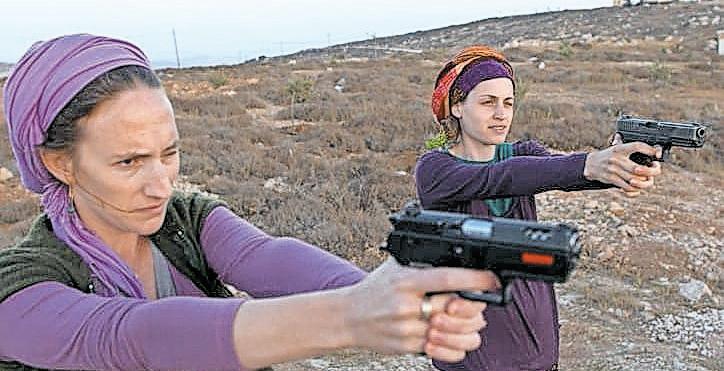
comfort with firearms.
“At the range, I was really shaking, I couldn’t control the shooting. It was really difficult. … The experience of shooting is scary at first, but I told myself to imagine the terrorist who killed my cousin in front of me and shooting. It took me a while to calm down from the tremors but
today I have a different feeling. I know what to do. I’m not fragile. I protect the people of Israel.”
Oshrat Gispan, who is also from Tekoa, took up a firearm 10 years ago. She helps out the new shooters, some of whom have a hard time.
“They are young, on the verge of crying. It’s really not easy but as soon as there is support
and reinforcement they get used to it. They control the tool and it doesn’t control them.”
She’s part of a group of women that conducts advanced training. “We train to draw quickly, disassemble the weapon, shoot from inside a house, from a moving vehicle, from a window, driving in slalom, bypassing large stones, all so I won’t be responding to an incident for the first time.
“I enjoy the ranges. It works my nerves out. It’s a mental relief that we have a tool. I’m usually the only woman at the range and the treatment is respectful,” Gispan said.
She stressed that a gun “is a life-saving tool. Every time you come to shoot, say [to yourself], ‘It is in the name of G-d, for my home and family.”
The Oct. 7 massacre has awakened a once indifferent public to the need to take up arms. Demand was such that a Knesset command center was set up to handle the flood of applications.
Prime Minister Benjamin Netanyahu said in a national address in October, “We’re encouraging citizens, and helping citizens, to arm themselves with personal weapons for defense.”
On Oct. 16, the Knesset National Security Committee approved regulations expanding the criteria for obtaining a gun license. —JNS
Twenty inspired women from Great Neck recently partnered to create a moving bat mitzvah party in Jerusalem for 22 girls, all victims of terror.
The story began with survivors of the Oct. 7 Nova music festival massacre, Eden Shmuel and Shira Cohen, who embarked on a speaking tour in the US to share their personal stories of pain and resilience.
Although a 40-person women’s solidarity mission from the United Mashadi Jewish Community of America (UMJCA) in Great Neck had recently returned from Israel, Shmuel and Cohen’s stories inspired a drive to plan a second mission. UMJCA decided in cooperation with the Jerusalem-based OneFamily organization to host a bat mitzvah celebration in Jerusalem.
“We all had chills when we heard of this idea from OneFamily, especially because our largely Persian Jewish community has a group bat mitzvah called a jamati every year,” said Natalie Kamali, one of the UMJCA mission leaders. “So, we added the jamati to our itinerary and it was one of the main highlights of
our trip.”
The bat mitzvah party had the elements of a lavish celebration — an elegant multicourse meal, lively dancing music with a DJ, and a table laden full of gifts from the UMJCA group for each celebrant.
Each of the bat mitzvah girls carries a story of personal loss due to terrorism and war. Noa Fisch, for example, lost her brother, Capt. Eitan Fisch from the Armored Corps, who was killed in Dec. in Gaza.
Two of the girls had fathers who were policemen killed in Sderot on Oct. 7. One is from Kiryat Gat from an Ethiopian background and the other family was new to Sderot with Moroccan roots. Their families have come together over the past months through tragedy.
For over 20 years, OneFamily, Israel’s largest organization supporting victims of terror and their families, has provided critical emotional, financial, and rehabilitative assistance to those impacted by terrorism. Led by founder and CEO Chantal Belzberg, the organization was recently named one of the 2024 recipients of the prestigious Genesis Prize.
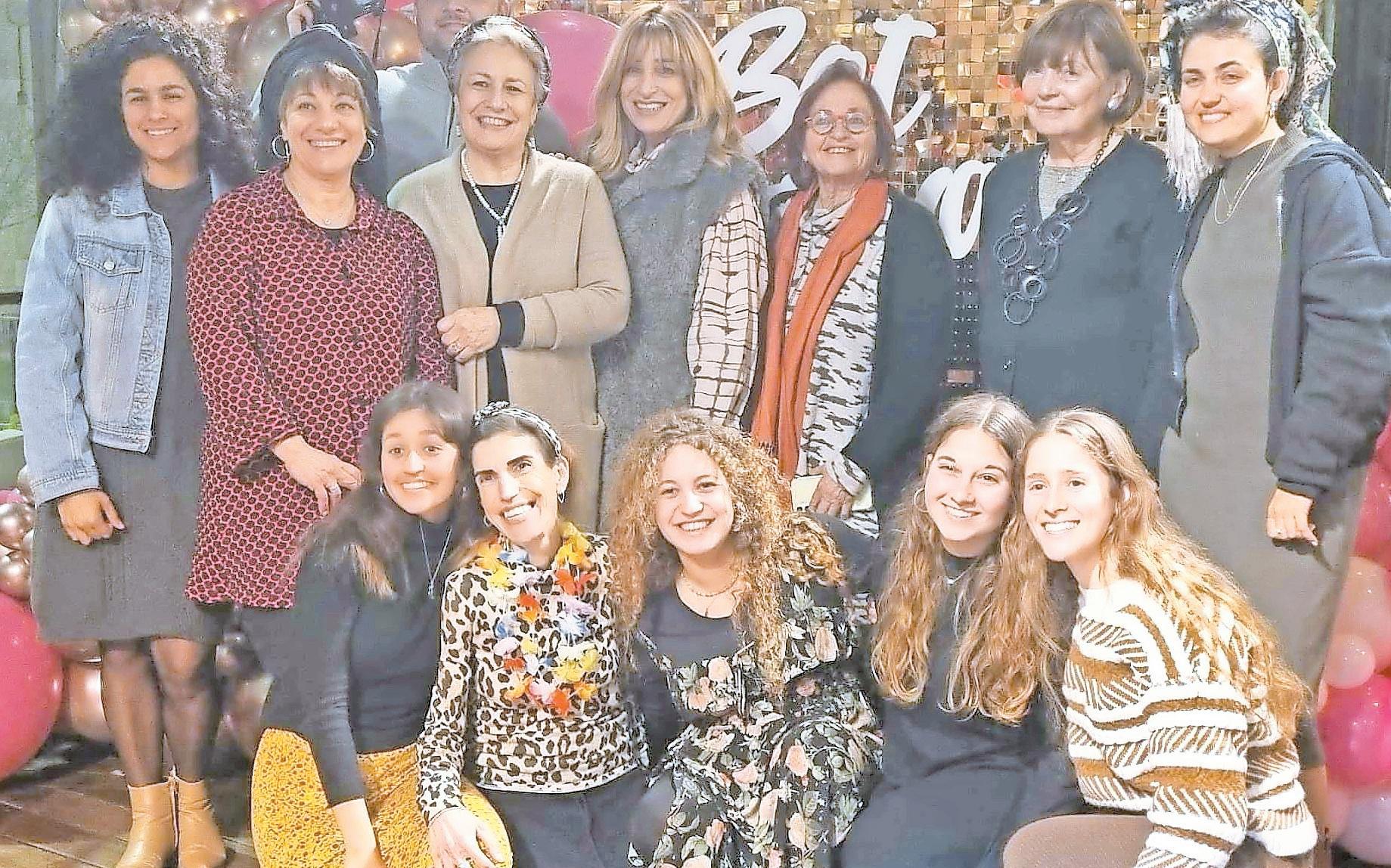
The 13th of Adar, erev Purim, marks the 20th yahrzeit of our dear Rabbi Dr. Ephraim R. Wolf, Rav Ephraim Reuven ben Nachum Chaim, zt’l. The Modern Orthodox community in Great Neck was shaped by him.
When Rabbi Wolf became the spiritual leader of the Great Neck Synagogue in 1956, the strong denominations on the peninsula were Reform and Conservative. At the time, Orthodoxy was perceived to be outmoded and declining, out of touch with modern society.
“Through his force of personality, Rabbi Wolf was able to give a legitimacy to Orthodoxy that Great Neck might otherwise not have had,” according to Rabbi Dale Polakoff, who in 1988 succeeded Rabbi Wolf as rabbi of the Great Neck Synagogue.
Rabbi Wolf was devoted with all his heart and soul to our Holy Land. Everyone from Great Neck who traveled to Israel became a shaliach mitzvah, whether they were asked by Rabbi Wolf to deliver tennis balls for underprivileged kids to play with, or letters for posting (with the stamps affixed already), or to take much-needed dental supplies. Rabbi Wolf always referred to his congregants as
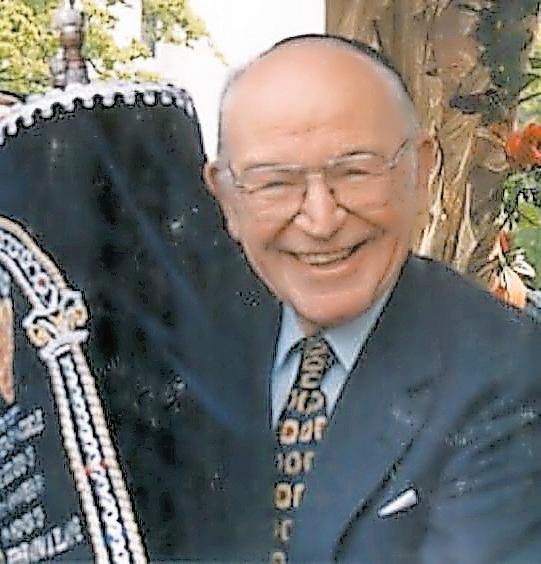
“You beautiful people,” and he meant it with all his heart.
The Great Neck community grew rapidly.
Rabbi Wolf, with the capable assistance of his wife, Rebbetzin Elaine Wolf, established the North Shore Hebrew Academy and a mikveh (which, in order to gain village approval, was
initially referred to as a wading pool) and worked countless hours gaining approval for the Great Neck eiruv. All of these achievements helped shape Great Neck into the bastion of Orthodoxy that it is today, eventually serving as home to the Young Israel of Great Neck as well as to many Sephardic congregations, including Israeli, Persian, and Iraqi synagogues.
In the early days, Rabbi Wolf drove the bus to make sure students got to school. On snowy days, he shoveled snow off sidewalks, recalled Sharon Goldwyn, a congregant and a student at the North Shore Hebrew Academy in its early days, whose parents were among the founders of both the school and the synagogue. When snow got in her boots, Rabbi Wolf went back to her home to make sure that she had dry socks and shoes. She couldn’t learn Torah if her feet were wet and cold, Rabbi Wolf told her!
When my wife Drora and I and our family moved to Great Neck in 1993, Rabbi Wolf already had assumed the position of rabbi emeritus of GNS. I observed that both Rabbi and Rebbetzin Wolf would modestly try not to intervene in the daily goings-on of the synagogue, so as not to give the appearance
of “still running the shul.” But one thing that Rabbi Wolf couldn’t resist was trying to make newcomers or strangers to the synagogue feel welcome.
On many occasions, Rabbi Wolf would say to me, “Paul, you’re a friendly guy. Why don’t you go over and say ‘Shalom Aleichem’ to that gentleman over there and make him feel at home!” To this day, when somebody comes to the shul whom I do not recognize, I try to follow Rabbi Wolf’s sage advice, which invariably gives me the impetus to go over and welcome him. This is just one striking example that exhibited Rabbi Wolf’s sensitivity and caring for others.
I used to greet Rabbi Wolf every Shabbos with a jocular “Thanks for coming, Rabbi — I know it’s your day off!” This always made him chuckle. But in all seriousness, my dear rabbi, thanks for coming!
May Rabbi Wolf’s neshamah have an aliyah and may his memory — along with that of his wife, Rebbetzin Elaine Wolf, a”h — be a blessing for us all, his children Shimon and Hennie of Kew Gardens, and Dr. Dahvid and Leah Wolf of Meitar, Israel, and his many grandchildren and great-grandchildren, ken yirbu.

Making Jewish journalism great again.
jewish star torah columnists:
•Rabbi Avi Billet of Anshei Chesed, Boynton Beach, FL, mohel and Five Towns native •Rabbi David Etengoff of Magen David Yeshivah, Brooklyn
•Rabbi Binny Freedman, rosh yeshiva of Orayta, Jerusalem
contributing writers:
•Rabbi Sir Jonathan Sacks zt”l,
former chief rabbi of United Hebrew Congregations of the British Commonwealth •Rabbi Dr. Tzvi Hersh
Weinreb, OU executive VP emeritus
•Rabbi Raymond Apple, emeritus rabbi, Great Synagogue of Sydney •Rabbi Yossy Goldman, life rabbi emeritus, Sydenham Shul, Johannesburg and president of the South African Rabbinical Association.
contact our columnists at: Publisher@TheJewishStar.com
Five towns candlelighting: From the White Shul, Far Rockaway, NY
Fri March 22 / 12 Adar II
Zachor • Erev Purim • Vayikra
Candles: 6:52 • Havdalah: 8:02
Sat night March 23 and Sun March 24 / 14 Adar II
Purim
Mon March 25 / 15 Adar II
Shushan Purim
Fri March 29 / 19 Adar II
Parah • Tzav
Candles: 6:59 • Havdalah: 8:09
Fri April 6 / 26 Adar II
Shmini • Shabbos Mevarchim
Candles: 7:06 • Havdalah: 8:16
Fri April 12 / Nisan 4
Tazria
Candles: 7:13 • Havdalah: 8:23
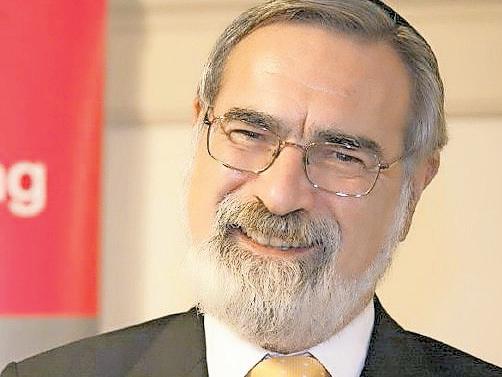
Our parsha, Vayikra, which deals with a variety of sacrifices, devotes an extended section to the chattat, the sin offering, as brought by different individuals: first the High Priest (Ex. 4:3-12), then the community as a whole (Ex. 4:13-21), then a leader (Ex. 4:22-26) and finally an ordinary individual (Ex. 4:27-35).
The whole passage sounds strange to modern ears, not only because sacrifices have not been offered for almost two millennia since the destruction of the Second Temple, but also because it is hard for us to understand the very concepts of sin and atonement as they are dealt with in the Torah.
The puzzle is that the sins for which an offering had to be brought were those committed inadvertently, be–shogeg. To give a contemporary example: suppose the phone rings on Shabbat and you answer it. You would only be liable for a sin offering if either you forgot the law that you may not answer a phone on Shabbat, or you forgot the fact that the day was Shabbat. If, for a moment, you thought it was Friday or Sunday, your sin was inadvertent.
This is the kind of act that we don’t tend to see as a sin at all. It was a mistake. You forgot. You did not mean to do anything wrong. And when you realize that inadvertently you have broken Shabbat, you are more likely to feel regret than remorse. You feel sorry but not guilty.
We think of a sin as something we did intentionally, yielding to temptation perhaps, or in a moment of rebellion. That is what Jewish law calls be-zadon in biblical Hebrew or be-mezid in rabbinic Hebrew. That is the kind of act we would have thought calls for a sin offering. But actually, such an act cannot be atoned for by an offering at all. So how are we to make sense of the sin offering?
The answer is that there are three dimensions of wrongdoing between us and G-d. The first is guilt and shame.
When we sin deliberately and intentionally, we know inwardly that we have done wrong. Our conscience — the voice of G-d within the human heart — tells us that we have done wrong. That is what happened to Adam and Eve in the Garden of Eden after they had sinned. They felt shame. They tried to hide. For that kind of deliberate, conscious, intention-
Intentional or not, to sin is to disturb the moral balance of the world.
al sin, the only adequate moral response is teshuvah, repentance. This involves (a) remorse, charatah, (b) confession, vidui, and (c) kabbalat he-atid, a resolution never to commit the sin again. The result is selichah umechilah, G-d forgives us. A mere sacrifice is not enough.
However, there is a second dimension. Regardless of guilt and responsibility, if we commit a sin we have objectively transgressed a boundary. The word chet means to miss the mark, to stray, to deviate from the proper path. We have committed an act that somehow disturbs the moral balance of the world.
To take another secular example, imagine that your car has a faulty speedometer. You are caught driving at 50 miles per hour in a 30 mile an hour zone. You tell the policeman who stops you that you didn’t know. Your speedometer was only showing 30 miles per hour. He may sympathize, but you have still broken the law. You have transgressed the speed limit, albeit unknowingly, and you will have to pay the penalty.
That is what a sin offering is. According to Rabbi Shimshon Raphael Hirsch it is a penalty for carelessness. According to the Sefer Ha-Chinuch it is an educational and preventive measure. Deeds, in Judaism, are the way we train the mind. The fact that you have had to pay the price by bringing a sacrifice will make you take greater care in future.
Rabbi Isaac Arama (who lived in Spain in the 15th century) says that the difference between an intentional and an unintentional sin is that in the former case, both the body and the soul were at fault. In the case of an unintentional sin only the body was at fault, not the soul. Therefore a physical sacrifice helps, since it was only the physical act of the body that was in the wrong. A physical sacrifice cannot atone for a deliberate sin, because it cannot rectify a wrong in the soul.
What the sacrifice achieves is kapparah, not forgiveness as such but a “covering over” or obliteration of the sin. Noah was told to “cover” (ve-chapharta) the surface of the Ark with pitch (Gen. 6:14). The cover of the Ark in the Tabernacle was called kapporet (Ex. 25:17). Once a sin has been symbolically covered over, it is forgiven, but as the Malbim points out, in such cases the verb for forgiveness, s-l-ch, is always in the passive (venislach: Lev. 4:20, Lev. 4:26, Lev. 4:31). The forgiveness is not direct, as it is in the case of repentance, but indirect, a consequence of the sacrifice.
The third dimension of sin is that it defiles. It leaves a stain on your character. Isaiah, in the presence of G-d, feels that he has “unclean lips” (Is. 6:5). King David says to G-d, “Wash me thoroughly from my iniquity, and cleanse me from my sin” — “me-chatati tahareni” (Ps. 51:4).
About Yom Kippur the Torah says:
On that day atonement will be made for you, to cleanse you [letaher etchem]. Then, before the L-rd, you will be clean from all your sins.” Lev. 16:30

Ramban says that this is the logic of the sin offering. All sins, even those committed inadvertently, have consequences. They each “leave a stain on the soul and constitute a blemish on it, and the soul is only fit to meet its Maker when it has been cleansed from all sin” (Ramban to Lev. 4:2).
The result of the sin offering is tehora, cleansing, purification. So the sin offering is not about guilt but about other dimensions of transgression. It is one of the stranger features of Western civilization, due in part to Pauline Christianity, and partly to the influence of the philosopher Immanuel Kant, that we tend to think about morality and spirituality as matters almost exclusively to do with the mind and its motives. But our acts leave traces in the world. And even unin-
tentional sins can leave us feeling defiled.
The law of the sin offering reminds us that we can do harm unintentionally, and this can have psychological consequences. The best way of putting things right is to make a sacrifice: to do something that costs us something.
In ancient times, that took the form of a sacrifice offered on the altar at the Temple. Nowadays the best way of doing so is to give money to charity (tzedakah) or perform an act of kindness to others (chessed). The Prophet said so long ago, in G-d’s name:
For I desire loving-kindness, not sacrifice. Hosea 6:6
Charity and kindness are our substitutes for sacrifice and, like the sin offering of old, they help mend what is broken in the world and in our soul.

The Torah requires us to celebrate three major festivals — Passover, Shavuot, and Sukkot — and to do so joyously. Our Sages instituted two additional festive holidays, Chanukah and Purim. Without question, it is this latter that evokes the greatest exhibitions of joy and gaiety.
Already at the time of its inception, the 14th day of Adar is described as “a day of merrymaking and feasting, as a holiday and an occasion for sending gifts to one another” (Esther 9:21).
For many centuries, Jews have emulated those practices and have attempted to recreate the atmosphere of that historic moment when “the Jews enjoyed light and gladness, happiness, and honor” (ibid. 8:16).
There have certainly been times in Jewish history when it has been relatively easy to recapture the mood of that triumphant time. But the nature of Jewish history is such that almost every year is marred by tragedy, national or personal, which makes joyous celebration challenging, if not impossible. It is difficult to make merry when one is burdened by woes, particularly when those woes threaten the very existence of our people.
One wonders, for example, how Purim was celebrated in the ghettos and concentration camps of Eastern Europe during the terrible
years of the Holocaust.
One prominent Holocaust historian, Dr. Esther Farbstein, has investigated this very question. In her book, “Hidden in Thunder: Perspectives of Faith, Halachah and Leadership during the Holocaust,” she examines numerous documents which describe the religious experiences of those who were condemned to celebrate Purim while enslaved in the hellish conditions of places like the Warsaw Ghetto.
Before drawing upon her research, I must point out that this Shabbat immediately pre-
cedes the Purim festival, which occurs later next week. In anticipation of the imminent holiday, we supplement the weekly Torah portion, Vayikra (Leviticus 1:1-5:26), with a brief paragraph from the parasha of Ki Tetzei (Deuteronomy 25:17-19). There, we are instructed:
“Remember what Amalek did to you … after you left Egypt — how, undeterred by fear of G-d, he happened upon you … when you were famished and weary.”
We are further urged to never forget his stealth and treachery. It’s for this passage urging us to remember (zachor) that this Sabbat is known as Shabbat Zachor.
We anticipate Purim by recalling the enemies from whose genocidal threats we were delivered by Divine Providence. See Weinreb on page 22

Rabbi Daniel Rose wrote the following that will serve as the keynote to this week’s essay:
“These days of Purim,” the Book of Esther says, “should be remembered and celebrated.” On the Shabbos before Purim, we read about the Torah’s instructions that we never forget the cowardly attacks of Amalek, the primordial nemesis of the Jewish people.
“Remember” — This Shabbat is called Shabbat Zachor, the Shabbat of remembering.
“Even wine, the beverage which seems to fea-
ture in every significant event in the Purim story, is associated by the Torah with memory. ‘Its memory was like wine’ [Hosea, 14:8]. Clearly, there is something special about Purim and memory.”
Distinguished historian Dr. Yosef Hayim Yerushalmi wrote a short yet profound book entitled, “Zakhor: Jewish History & Jewish Memory” (Schocken Books,1982). Yerushalmi details his views concerning the role that memory has within the relationship that the Jewish people with the history of their faith and theology.

There is a custom among our people for communities to celebrate the anniversary of
their redemption from imminent destruction. These special commemoratives are cast for the most part in the mold of “Second Purims” with their tone and themes thus resembling the atmospherics of a Purim celebration.
Yerushalmi makes much reference to these and I will cite below some of his, and other citations, to enrich your appreciation of both the theme of Purim and of its special influence on our people in years past, when tragedy “almost” struck. Consider this:
“Second Purims” were instituted in Jewish communities the world over to commemorate a
deliverance from some danger or persecution. I will cite only a few random examples, merely to indicate their diffusion and variety of circumstances that could give birth to them.
Thus, in Muslim Spain in the year 1038 a battle was fought near the village of El Fuente by the armies of Granada and Almeria. The vizier of the Kingdom of Granada was a Jew, the great poet and, scholar, and statesman, Samuel Ibn Nagrela, the only instance in the Middle Ages where a Jew occupied such a position of power.
He had ample reason to fear that should Granada be defeated it would mean not only his personal downfall, but that of the entire Jewish community. Accordingly, when the Granadan forces were victorious he declared a Second Purim, and sent forth copies of a magnificent Hebrew poem he had composed for the occasion to
See Gerber on page 22
We continue to strive to be more than we areFrom Heart of Jerusalem Rabbi biNNY FREEDMaN Jewish Star columnist

There is a darkness sometimes that rages within which can overpower our very being.
I had a Battalion commander, who took the first watch on the tank after a brutal day in the Lebanon war. It was the third night of fighting, and the men by now were near exhaustion.
In the middle of the night, alone with his thoughts, doing everything he could to stay awake after three days of warfare and no sleep, Shimon Ben Maimon came face to face with death in the form of a Syrian commando crawling up on to his tank. They were in such close quarters, there was
neither the room nor the time to cock and aim his machine gun. So they struggled in the night, hand to hand. The loader, sleeping on the turret next to Ben Maimon, thought his Commander was messing around with one of the guys, as he was wont to do, and went back to sleep. Eventually, Ben Maimon was able to overpower the Syrian Commando, at which point he had to decide what to do with him.
There were standing orders that no-one should take prisoners, but letting him go might have put other Israeli soldiers at risk later on, and tying him up and leaving him in the battle-field under the circumstances, was tantamount to having him killed.
So they kept him on the tank for three days before being able to pass him on to the proper authorities.
When asked later why he didn’t just shoot him,
(after all, here was an enemy soldier who had just tried to kill his entire crew) Ben Maimon’s response was, “because then he would have won.”
This week’s portion, Vayikra, in addition to serving as the beginning of the third book of the Torah, also introduces a new topic, one of the most mentioned topics in the Torah: the sacrifices. Yet one wonders, given that the Torah is meant to be ‘a living Torah,’ applicable in its entirety even now, what relevance do the sacrifices retain in today’s modern world?
The Ramban, in his commentary here, points out that the root of the Hebrew word for sacrifice, Korban, is the same root as the word Karov, meaning close. The underlying purpose of the sacrifices, suggests the Ramban, was to serve as a vehicle for bringing man closer to G-d.
How on earth did the experience of killing an animal and subsequently burning its flesh, serve
as a catalyst for deepening our relationship with G-d?
Rabbeinu Bachya Ib’n Pekudei, in his Chovot HaLevavot, points out that G-d gives us many gifts, and we are expected to use these gifts for good purposes in this world. The only reason G-d gives me a mouth is to use it to spread kindness, and the same is true for all the other parts of our body. Our minds and hearts therefore are also meant to be involved in the mitzvoth that we do. The purpose of any given action is not merely the performance of the action, rather the action was meant to cause us to think, and ultimately to grow, from the experience.
What is sacrificing an animal meant to convey? And what does it mean that G-d wants our sacrifices? Does Hashem somehow need these hapless goats and sheep?
See Freedman on page 22
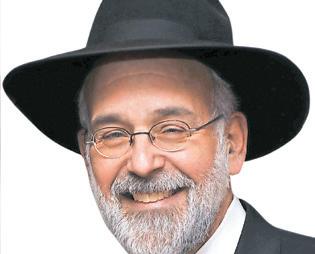
This Shabbat we will read Parashat Zachor which, according to the Shulchan Aruch, is a Torah-based mitzvah. In addition, it enables us to fulfill two of the three Taryag Mitzvot associated with Amalek as determined by the Rambam in his Sefer HaMitzvot: “Remember what Amalek did to us,” (Positive Commandment 189) and “We are warned not to forget what ‘the seed’ of Amalek did to us.” (Negative Commandment 59).
One of the essential principles of parshanut (Torah exegesis) is the timeless significance of each verse and narrative passage in the Torah.
According to Mishnah Yadaim 4:4, however, Sennacherib, King of Assyria (approximately 720-683 BCE) completely destroyed the cohesiveness of all nations and tribes of his time, including Amalek. If this is the case, why does the Torah state three separate eternal mitzvot regarding a tribal entity that no longer exists?
Rabbi Joseph B. Soloveitchik addresses this question in his famous 1956 essay, Kol Dodi Dofek, wherein he presents a seminal idea he learned from his father, Rav Moshe Soloveitchik: “At a Mizrachi convention I cited the view expressed by my father and master (Rabbi Moses Soloveitchik) of blessed memory, that
the proclamation, ‘The L-rd will have war with Amalek from generation to generation’ (Exodus 17:16), does not only translate into the communal exercise of waging obligatory war against a specific race but includes as well the obligation to rise up as a community against any people or group that, filled with maniacal hatred, directs its enmity against Keneset Israel.
“When a people emblazons on its banner, ‘Come, and let us cut them off from being a nation: that the name of Israel may be no more in remembrance’ (Psalms 83:5), it becomes, thereby, Amalek.”
According to this opinion of Rav Moshe Soloveitchik zatzal, Amalek is not a tribe or an ethnicity. Instead, it is a mindset with which we are all too familiar. Unfortu-
nately, this version of Amalek has existed for uncountable years, and will continue to exist until destroyed by Mashiach Tzidkanu. (Rambam, Mishneh Torah, Hilchot Melachim 11:4) The Rav underscores this point in the original Hebrew edition of “Kol Dodi Dofek”: Amalek still exists in the world. Go and see what the Torah says: “a war of Hashem with Amalek throughout all of the generations.” If so, it is impossible that Amalek will be destroyed from this world before the arrival of the messiah.
Accordingly, the Rav writes:
In the 1930’s and 1940’s the Nazis, with Hitler at their head, filled this role. They were the Amalekites, the standard-bearers of insane hatred and enmity during the era just past. Today their place has been
See Etengoff on page 22
Jewish Star Associate: Nechama Bluth, 516-622-7461 ext 241.
Content: The Publisher endeavors to ensure that this newspaper’s content is within the bounds of normative halachah and hashkafah. Any reader who feels anything we publish may be inappropriate in this regard is urged to bring the item in question to the attention of the Publisher.
Advertising is accepted at the sole discretion of the Publisher. The Publisher expects all advertising to conform to standards of content appropriate for distribution in an Orthodox community.
Send us your news! News@TheJewishStar.com
Advertising: Publisher@TheJewishStar.com
Kashrut: The Jewish Star is not responsible for the kashrut of any product or establishment featured in its pages. If you have questions regarding any establishment or product, including its supervision, please consult your rabbi for guidance.
Submissions: All submissions become the property of The Jewish Star and may be edited and used by the Publisher, its licensees and affiliates, in print, on the web and/or in any media that now exists or will exist in the future in any form, including derivative works, throughout the world in perpetuity, without additional
authorization or compensation. The individual or entity submitting material affirms that it holds the copyright or otherwise has the right to authorize its use in accordance with The Jewish Star’s terms for submissions.
Opinions: Views expressed by columnists and other writers do not necessarily reflect the position of the Publisher or of The Jewish Star LLC.
Distribution: The Jewish Star is available free in kosher food establishments, stores, synagogues, and curb-side newsboxes on Long Island, in New York City and elsewhere. To request free delivery to your location, write Publisher@TheJewishStar.com.

With every day that passes, it becomes ever clearer that Western civilization is no longer civilized.
Israel’s war of defense against a genocidal enemy is an inflection point in the seismic battle between civilization and barbarism. The West is failing that test.
This was illustrated at the Oscars. Numerous Hollywood stars sported red pins supposedly backing a ceasefire in Gaza. The pin depicts the palm of an orangey-red hand on a red background with a black heart in the middle.
For some Israel supporters, this image channeled the infamous picture taken in 2000, when a Palestinian terrorist involved in the savage lynching of two Israeli soldiers in Ramallah triumphantly displayed his two bloody palms to the frenzied mob.
The group that distributed the pin, Artists4Ceasefire, claims that the hand image “conveys the beautiful community of people from all backgrounds that have come together in support of centering our shared humanity” and that the heart is an “invitation for us to lead with our hearts.”
This asinine froth does not convince. The palm of a hand does not denote community; hand symbols are usually white, a heart is usually red and a red hand signifies a bloody one.
A black heart, meanwhile, commonly denotes evil. And the 2000 lynching involved ripping the heart out of one of the Israeli corpses and holding it exultantly in a Palestinian hand.
Conversely, the image could have been reflecting the symbol used in countless anti-Israel demonstrations to signify that Israel has blood on its hands: A symbol that grotesquely paints the Israelis fighting to defend themselves against genocide as wanton killers of the innocent.
The Oscars ceremony also featured an attempt to transform Israeli suffering into Israeli oppression by Jonathan Glazer, director of the much-lauded Holocaust movie “The Zone of Interest.”
Standing with his two backers, Glazer said, “Right now we stand here as men who refute
Human rights culture has mainstreamed Hamas lies.

their Jewishness and the Holocaust being hijacked by an occupation which has led to conflict for so many innocent people.” The victims of the Oct. 7 pogrom and the inhabitants of Gaza, he said, were “all the victims of this dehumanization.”
His ignorance was staggering. Apart from no land being illegally “occupied” by Israel, the cause of the conflict is the century-old attempt by the Palestinian Arabs to eradicate the Jewish presence in the Land of Israel and then the Jewish state. And to accuse Israel of dehumanization, when it’s going to greater lengths than any other army in the world to minimize civilian casualties, was simply malevolent.
Far worse, though, was Glazer’s abuse of Judaism and the Holocaust to claim that Israel had hijacked both. He implied that Israelis were like Nazis and that their behavior went against Jewish principles.
This to describe a war caused by the worst atrocities against Jews since the Holocaust and Israel’s attempt to ensure that a second Holocaust does not happen again.
The obscenity of Glazer’s comments can scarcely be exaggerated. The belief that demonizing Israeli Jews somehow represents Jewish values is, however, a pathology that has twisted the minds of many liberal American Jews. It is being fed by a venomously distorted presentation of Israelis as child-killers in Gaza that’s being ruthlessly pumped out by Western media.
This accusation, of course, channels a paranoid antisemitic trope. It’s also based on Hamas propaganda claims that are patently untrue.
In a notable article in Tablet, Abraham Wyner, professor of statistics and data science at
the University of Pennsylvania, has used basic statistical analysis to suggest that the Hamas casualty figures of 30,000 dead Gazans, of whom 70% are said to be women and children, are fake because the daily totals increase too consistently to be real.
Other problems with these figures are that they include as children the many teenagers who are committing Hamas atrocities, as well as the civilians killed by thousands of rockets falling short into Gaza.
Why, though, do so many believe these patent untruths propagated by Hamas? One reason is that the false premises of “intersectional” identity politics automatically turn Israelis into “oppressors” and the Palestinians into their “victims.” This doesn’t explain, however, why so many subscribe to the demonstrably ludicrous belief that Israel is committing “genocide.”
For decades, the Palestinians have accused Israelis of being “Nazis” and committing “genocide” to obscure the fact that their own Holocaust denial runs in tandem with their declared intention to kill every Jew.
This “genocide” smear has been taken up by the Palestinians’ Western supporters largely through the influence of human rights culture.
In total contradiction to its foundational ideals, this culture has turned into a vehicle for singling out certain human rights for extinction: The right of the Jewish people to live in their own ancestral homeland.
In the 1970s, radical idealists who were disillusioned after the discrediting of European socialism alighted upon “human rights” as another universalizing creed promising to bring about utopia.
As the ultimate particularist culture, Judaism is in the way of all universalizing creeds; and so Israel, the particularist Jewish state, had to be dumped. The stage was set for the demonization of Israel tied to the increasing dominance of international human rights doctrine.
A living example of this is Samantha Power, head of the US Agency for International Development and the Obama administration’s US ambassador to the UN.
A noted expert on genocide, Power has long said the United States bears a unique responsibility to prevent mass atrocities.
It was therefore an irony that, earlier this year, Power was attacked by current and former USAID employees for belonging to an administration providing military support to Israel in the war against Hamas. Although she told these officials it was “very important that what happened on Oct. 7 never happen again,” she failed to push back against their claim that Israel was committing “genocide” in Gaza.
Given her history, this perhaps wasn’t surprising. In 2002, she was asked as a “thought experiment” what she would advise the US president to do about the Israel-Palestinian problem “if one party or another [starts] looking like they might be moving towards genocide.”
In response to this already disturbingly loaded question, Power said that something should be put “on the line” to help the situation. This might mean “alienating a domestic constituency of tremendous political and financial import. … It does require external intervention.”
Power wasn’t talking about preventing the Palestinians from committing genocide against the Jews of Israel. She was talking about invading Israel to prevent an Israeli genocide against the Palestinians.
She was suggesting that Israel might commit atrocities against people who themselves make Israel the victim of precisely such atrocities: The vile smear being used against Israel today. She also suggested that the only people who might be alienated if the US invaded Israel for this purpose would be American Jews, who she said exercised tremendous political and financial power over America.
The antisemitism of this remark aside, the thinking here was that Jews can’t be allowed to get in the way of the human rights doctrine that state power is always used to make victims and never to protect people from becoming victims in the first place.
Israel is fighting a desperate battle for its survival. Its people are in a state of ever-deepening trauma, grief and anxiety. Some of their families and friends are still hostages in Gaza meeting unthinkable fates. The death toll among their conscripted children and grandchildren fighting to defend their country is steadily ticking upwards. They understand that genocidal savages intend to continue their attacks until they have destroyed the Jewish homeland and slaughtered every Jew.
In this truly desperate situation, what’s even worse is that the so-called “civilized” West — which also wants the Jews removed from its headspace and its conscience — is accusing them of the crime of which they are the present and intended victims.
That is an unspeakable abandonment of the Jewish people and to the West a source of ineradicable shame.

The Soothsayer in Shakespeare’s “Julius Caesar” warns, “beware the ides of March.”
Caesar dismisses the warning, ignorant of the fact that his enemies are plotting against him. His dismissal is a mortal error, as he is assassinated on that prophesied day.
Caesar initially resists his attackers, but ultimately succumbs to them when he realizes that the attack is coming not just from his known enemies, but at the hand of the person he thought he could trust the most, Brutus. It is a seminal example of how political machinations can turn the loyalty of a friend.
Israel is in the midst of not only a military battle against a genocidal enemy, Hamas, as well as a brewing border war in the north with Hezbollah, but legal, political and public relations battles, on numerous fronts. It has been dragged into the dock at the Hague and maligned in the press.
For trying to move civilians out of harm’s way by getting them to evacuate northern Gaza and asking that other countries take in Gazan refugees, it has been accused of “ethnic cleansing,” and when it unintentionally kills civilians in the pursuit of Hamas terrorists, weapons and command and control structure, which is deliberately enmeshed among civilians, it is accused of “genocide.” Damned if it does, damned if it doesn’t.
And so it was both baffling and galling when Senator Charles Schumer, a person who has prided himself on being a “shomer” of Israel, chose this time to directly attack Israel’s Prime Minister, Benjamin Netanyahu.
There has long been a well-known desire among Democratic politicians to see Netanyahu out of office, for good. Many in Israel’s electoral body politic feel the same way, and it is likely that, whenever the next election comes, Netanyahu will be voted out. Many disagree with his strategies and hold him directly responsible for the Simchat Torah Massacre of Oct. 7. The buck stops on his desk, after all.
But Senator Schumer’s attack on Netanyahu, from the floor of the Senate, coming from the highest-ranking Jew in American politics, is disgraceful.
Even assuming arguendo that Schumer believes he has Israel’s best interests at heart, such a public, high-profile call for the removal of Israel’s leader, in a time of war — and including him among the “obstacles to peace” in the same sentence as Hamas and Mahmoud Abbas — when Israel is being attacked from all sides, is inexcusable and unprecedented. It gives succor to Israel’s true enemies in American politics (the infamous “Squad,” for example). After all, if Senator Schumer feels it is acceptable for American politicians to publicly lump the Israeli Prime Minister in with terrorists and their leaders, and openly call for his removal from office, what’s to stop the true Israel haters from ramping up their attacks?
One would be hard-pressed to recall any similar public calls from a ranking American politician for the removal of the democratically elected leader of a long-time US ally.
I am sure that many in the Democratic establishment were unhappy with Boris Johnson when he was prime minister of the UK. American leaders were often not enthralled, to put it mildly, with Charles DeGaulle when he led France (particularly his opposition to the United States taking a leadership role in NATO). But it would have been unthinkable for a ranking

American politician to publicly call for their removal from office — let alone from the floor of the Senate — the way Senator Schumer did with regard to Prime Minister Netanyahu.
It is a slap in the face of our ally and, frankly, an insult to Israeli democracy.
Israelis are a sophisticated group. They know how to go to the polls (often, lately) and decide who “fits the needs of Israel.” Despite the unpopularity of the prime minister, the Israeli public was understandably shocked by the senator’s statement.
Schumer’s incantation of an urgent need for a “two state solution,” and his chastising of Netanyahu for his opposition to one, was also particularly tone-deaf. In the wake of Oct. 7 and in
the course of this war, across most of the Israeli political spectrum and its populace, there is virtually no stomach for consideration of a Palestinian state right now, and many Israelis rightly see such talk as a reward for the brutality that began this war.
Moreover, Schumer’s attack on Netanyahu smacks of gross hypocrisy. The United States is vociferously opposed to election interference when it is directed at the United States, and justly so.
We had a multi-year, multi-million-dollar investigation of alleged Russian interference when President Trump was elected (a process that finally went off with all the fury of a wet firecracker). When Mitt Romney was running against President Obama, Democrats bristled at what they considered Prime Minister Netanyahu’s “meddling” by seeming to endorse Romney. In fact, he never did, and stated publicly, repeatedly, that he did not want to weigh in on the American election.
When President Trump said to Netanyahu, during a live call, that “Sleepy Joe” (Biden) would not have accomplished for Israel what Trump had, Netanyahu deflected, saying that Israel was grateful for US support regardless of where it came from.
But the Democrats have not been as considerate in reverse.
President Obama, during a trip to Israel, told Israelis, during an election run-up, that Netanyahu was leading the country in the wrong direction (effectively encouraging Israelis to vote against him). US government funds went to the V15 group, which was working to unseat Netanyahu. And President Obama’s election team subsequently worked for the Israeli opposition against Netanyahu.
See Bressler on page 22
Here’s the bitter truth about today’s anti-Zionism

Collisions are often unintentional. Bumping into someone as you walk down a busy thoroughfare with one eye on your cell phone or scraping a parked car as you reverse along a narrow street are experiences most of us have had at one time or another. And generally speaking, because these events are accidents, reasonable people can reach an understanding in their aftermath.
So my concern when I saw the headline above a March 11 opinion piece in the New York Times by columnist Michelle Goldberg — “Where Antisemitism and Anti-Zionism Collide” — was that readers would interpret the word “collide” here as an indicating an unintentional accident, thereby reinforcing the widely held view that while antisemitism is an unacceptable, intolerable phenomenon, anti-Zionism is a legitimate, morally founded viewpoint that deserves to be engaged.
Hatred of Zionism isn’t a self-contained phenomenon that just happens to collide on occasion with hatred of Jews: That would amount to an unfortunate accident. But anti-Zionism and antisemitism are intimately related.
Like non-identical twins, they have a handful of unique features, but fundamentally, they are the same. Hatred of Zionism is a natural outgrowth of the hatred of Jews. Of course, not all of those who define themselves as anti-Zionists
When it collides with antisemitism, it’s anything but an accident.
see it that way, but that’s because they lack the historical and intellectual grounding to make that determination. When anti-Zionism collides with antisemitism, it’s anything but an accident.
Goldberg, it should be said, doesn’t belong to that crowd. While there was much to disagree with in her piece, I respected her frankness in admitting that as a secular Jew enjoying “the great privilege of an American passport,” she doesn’t feel much of a personal connection to the State of Israel. What she does understand is that the core fixations of anti-Zionism — and particularly its goal of dismantling the Jewish state and replacing it with an Arab one “from the river to the sea” — sound discordantly antisemitic in the ears of the vast majority of Jews in America and around the world.
“I can’t fault Jews who see, in the mounting demonization of Zionism, the replay of an old and terrifying story,” she wrote. “After all, anti-Zionism isn’t always antisemitism, but sometimes it is. And right now, some opponents of Israel seem to be trying to prove that the mainstream Jewish community is right to conflate them.”
This statement is basically true, but it doesn’t reveal the deeper, underlying truth, which is why Goldberg’s piece is fundamentally unsatisfying.
I’ve written in past columns about what I regard as the critical difference between “antiZionism” with a hyphen and “antizionism” without one.
In historical terms, “anti-Zionism” was a phenomenon of the late 19th and early 20th centuries that commanded the loyalty of many Jews, who mistakenly if honestly believed that a separate Jewish state was not the answer to centuries of Jewish persecution.
Not all the early generations of anti-Zionists were free of antisemitism — the Bolshevik ban on Zionist organizations and the study of Hebrew in the aftermath of the Russian Revolution was clearly antisemitic, for example — but there was a greater willingness to critique Zionism on the basis of its claim to be the national liberation
movement of the Jewish people, and less reliance on the conspiracy theories and crude memes that pass for critique on social media today.
“Antizionism” without the hyphen marks a new and far more dangerous phase, however. Essentially, it involves tearing up a complex reality in favor of an ideologically blinkered, implacably hostile caricature of what Zionism actually is.
Today’s “antizionists” have made their hatred of Israel’s sovereign existence the main focus of their antisemitism, which then uncomplicatedly imports older themes — Jews as disloyal to the countries where they are citizens, Jews as engaged in wellfunded conspiracy to mask the malign effects of their actions — into its discourse.
ery of the notion of a binational state.
From the river to the sea, a “free” Palestine will be a place where Jews are brutally subjugated as a prelude to their eventual expulsion or even elimination. The stream of statements from Palestinian politicians — not just Hamas, but also Fatah, and notably Palestinian Authority chief Mahmoud Abbas — describing Israel as a colonial interloper, the Holocaust as a fabrication and the Oct. 7 pogrom as an act of noble resistance are all the evidence we need here.
The Israeli view is this: Stop trying to kill us, let us live in peace. Then our guns will fall silent and we’ll make a deal.
This explains, as Goldberg seems to realize, how a Lyft driver in San Francisco is moved to punch a passenger in the face upon realizing that he is Jew from Israel, or how a literary magazine in Brooklyn can abruptly remove an essay on Israel and cancel its Jewish author solely because of the pressure of a fanatical mob.
The other overarching issue that troubles Goldberg is the unresolved Palestinian question. Again correctly, she understands that a binational state is a pipe dream, arguing that if the Walloon and Flemish nationalities in Belgium can’t get along, how could Israelis and Palestinians possibly do so?
Yet what she seems unable to perceive is that the Palestinian vision of what such a state would look like for its Jewish citizens was provided on Oct. 7 last year, when Hamas terrorists executed a bestial pogrom against defenseless Israelis and opinion polls in its immediate wake indicated overwhelming support for the atrocities among ordinary Palestinians. Indeed, it made a mock-
Acknowledging this ugly reality doesn’t, it is true, automatically suggest how the Palestinian question can be resolved humanely. And for most Israelis, frankly, that is not a priority right now, as they understandably are more concerned with preventing another Oct. 7 from occurring.
If that outcome could be secured through a political solution, then few would object. But such a solution is only possible if two conditions are satisfied: Firstly, that the Palestinians recognize Israelis as human beings with a right to self-determination in their historic homeland; and secondly, that any solution focuses on the physical separation of the two peoples, rather than attempts to bring them closer together.
For American liberals and progressives, among them many Jews, such a viewpoint is distasteful and jarring, to say the least.
For Israelis, though, this is literally a matter of survival. Stop trying to kill us, let us live in peace, they are saying, and our guns will fall silent, and we’ll make a deal.
That is the message the Palestinians refuse to hear, in large part because their political culture is saturated with antisemitism. For as long as the outside world mollifies them in this regard, nothing will change for the better.
Continued from page 4
one state, where Palestinians and Israelis would supposedly live in democratic peace side-by-side.
I can understand the idealism that inspires so many young people in particular to support a one-state solution. Why can’t we all live side-byside and house-by-house in peace?
I count at least two reasons why this wouldn’t work, and why it is unacceptable to most Jewish people.
First, this combined state could take an extreme turn politically, putting Jewish Israelis in peril. This state would be majority Palestinian, and in the past, some Palestinians have voted to empower groups like Hamas, which seeks to eradicate the Jewish people.
It is longstanding American policy to support democracy overseas, but in this hypothetical single state, democracy could cost Israeli Jews their safety if extremists were to take control of this new state of affairs to ultimately achieve their true aim: the violent expulsion of Jews from the Holy Land.
This is no abstract fear. Thousands of years of Jewish history show that when things go badly, the people of the country in which Jews live — even in a democracy — all too often turn on them as convenient scapegoats. There is no guarantee this wouldn’t happen again in a single IsraeliPalestinian state. To have Palestinian voters be the protectors of Israeli Jews would be a bridge too far to accept.
Second, Jews have a right to their own state.
It is troubling to me that many people, especially on the left, seem to acknowledge and even celebrate this right to statehood for every group but the Jews. If a national homeland for all peoples of the world has been the driving goal of the anticolonial movement of the last century, then why are only Jews seemingly penalized for this aspiration? Jews have a human right to their own state just as any other people do, Palestinians included.
As I said, there are also some Israelis who oppose even a two-state solution with a demilitarized Palestinian state because they fear that it might tolerate or be a harbor for further terrorism against a Jewish state.
I understand these fears. But the bitter reality is that a single state controlled by Israel, which they advocate, guarantees certain war forever, and further isolation of the Jewish community in the world to the extent that its future would be jeopardized.
Let me elaborate.
They say the definition of insanity is doing the same thing over and over and expecting a different result. If Israel were to not only maintain the status quo, but go beyond that and tighten its control over Gaza and the West Bank, as some in the current Netanyahu administration have suggested — in effect creating a de facto single state — then what reasonable expectation can we have that Hamas and their allies will lay down their arms? It would mean constant war.
On top of that, Israel moving closer to a single state entirely under its control would further rupture its relationship with the rest of the world, including the United States. Support for Israel has declined worldwide in the last few months, and this trend will only get worse if the Israeli government continues to follow its current path.
I appreciate that so many Israelis cannot contemplate the possibility of two states right now because they remain so traumatized and angry by what Hamas did on Oct. 7. The brutality, the viciousness, the sexual assault, the imprisonment and abuse of hundreds of hostages. I’m of course sympathetic to this point of view. I’m upset and angry, too.
We will never forget what happened on Oct. 7. But even while we carry the anguish in our hearts, we have to think ahead to the future, the medium and long term, and how we can ensure that something like Oct. 7 never happens again. We cannot let anger or trauma determine our ac-

tions and cloud our judgment.
A two-state solution may feel daunting, especially now, but I believe it is the only realistic and sustainable solution — on the basis of security, on the basis of prosperity, on the basis of fundamental human rights and dignity.
But in order to achieve a two-state solution, the reality is that things must change.
Right now, there are four major obstacles standing in the way of two states, and until they are removed from the equation, there will never be peace in Israel and Gaza and the West Bank.
Those four major obstacles are:
•Hamas, and the Palestinians who support and tolerate their evil ways.
•Radical right-wing Israelis in government and society.
•Palestinian Authority President Mahmoud Abbas.
•Israeli Prime Minister Benjamin Netanyahu.
I will explain each in detail.
The first major obstacle to peace is Hamas, and the Palestinians who support and tolerate their evil ways.
Hamas is for the destruction of Israel, and in past decades, it has undermined any hope for peace at every turn. It was Hamas who began its vicious campaign of suicide bombings against innocent Israelis to derail the nascent peace process in Oslo. It was Hamas who assassinated more moderate Palestinian political representatives in Gaza in 2007. It is Hamas who has held Gaza under repressive, undemocratic rule for close to two decades. And it is Hamas who has targeted those brave Gazans who have spoken out against its actions or tried to bridge the divide between Israelis and Palestinians.
Jewish Americans and Israelis alike have been appalled and hurt at efforts to rebrand Hamas, which is designated by the United States as a terrorist organization, as noble resistance or freedom fighters. Attempts to excuse their horrific actions against both Israelis and Palestinians are morally repugnant.
A permanent ceasefire, effective immediately, would only allow Hamas to regroup and launch further attacks on Israeli civilians. There can never be a two-state solution if Hamas has any significant power.
However, a temporary ceasefire, such as President Biden has proposed, which would allow for the return of hostages and humanitarian relief for suffering Palestinians, is quite different, and is something I support. But any proposal that leaves Hamas with meaningful power is unacceptable to me and most all Israelis.
It should go without saying that Hamas cannot have any role in a future Gaza if we are to
the Jordan River to the Mediterranean Sea, they aim to push the other from the land.
Ministers Smotrich and Ben Gvir may not say they want to kill all Palestinians outright, but they are clear in their desire to displace them from their homes and replace them with Israeli settlers.
This is also abhorrent. As long as these two hold their positions of power, peace will be difficult, if not impossible, to achieve.
The third major obstacle to peace is the President of the Palestinian Authority, Mahmoud Abbas, who is beholden to his narrow political interests, to the detriment of both the West Bank and Gaza.
Over the years, President Abbas has evaded the democratic process, declining to hold elections for over a decade and failing to empower future leadership. Despite his long tenure leading the Palestinian Authority, he has achieved few of his self-proclaimed goals. The Palestinian Authority remains corrupt and continues to incite instability through the martyr payment system. Palestinians are no more prosperous, no safer, and no freer than they were when Abbas first took power. As a result, President Abbas has lost the trust of the Palestinian people.
achieve peace.
The same goes for the minority of Palestinians who support Hamas and those who demonstrate other forms of extremism, even if they’re not card-carrying members. The Gazans who ventured into Israeli territory on Oct. 7 to loot and pillage. The people in the West Bank who flooded the streets and cheered from afar the cold-blooded killing of mothers and children.
This is appalling behavior, and while it may fall short of terrorism, it has no place in a peaceful future for Israel and Palestinians, and it ought to be denounced by the Palestinian public and their leaders who believe in a more sustainable future beyond the cycle of violent revenge.
The second major obstacle to peace is radical right-wing Israelis in government and society.
The worst examples of this radicalism are Finance Minister Bezalel Smotrich and Ministry of National Security Itamar Ben Gvir.
Minister Smotrich has in the past openly called for the subjugation or forced displacement of all Palestinians in the West Bank. In the current crisis, he has used inflammatory rhetoric and called for punitive restrictions on Palestinian farmers in the West Bank during the olive harvest. He has prevented the transfer of funds to the Palestinian Authority, and he has opposed the provision of any humanitarian assistance to Gaza, going so far as to stop agreed-upon shipments of flour.
Minister Ben Gvir is no better. When he was a young man, he was barred from Israeli military service for his extremist views. Last year, in a move only intended to antagonize the Muslim population, he visited the Temple Mount with his supporters as a brazen show of force towards Palestinians. And during this current conflict, he has facilitated the mass distribution of guns to far-right settlers, exacerbating instability and fueling violence.
There is a nastiness to what Ministers Smotrich and Ben Gvir believe and how they use their positions of authority and influence; an eagerness to inflame and provoke that is profoundly irresponsible and self-destructive.
In my conversations with Israeli leaders, I have urged them to do more to clamp down on the unacceptable vigilante settler violence in the West Bank, and I have supported the Biden administration’s efforts to impose consequences for extremist settler violence. But the unfortunate reality is that this violence is openly supported by Ministers Smotrich and Ben Gvir, and as long as they hold their positions of power, no true progress will be made.
While not equivalent, extremist Palestinians and extremist Israelis seek the same goal: from
Furthermore, he is a terrible role model and spiritual leader. In the past, he has participated in outright Holocaust denial, attempting to justify Nazis’ actions. This embrace of antisemitism extended to his refusal, for weeks, to condemn the loss of Israeli civilian life on Oct. 7. Should Abbas remain, the Palestinian people can have no assurance that a Palestinian state would be able to ensure their safety or prosperity. Nor can they have any belief that the government would be free of corruption.
For there to be any hope of peace in the future, Abbas must step down and be replaced by a new generation of Palestinian leaders who will work towards attaining peace with a Jewish State. Otherwise, the West Bank will continue to suffer, and Hamas — or some similarly extreme organization — will continue to maintain a foothold in Gaza.
The Palestinian Authority under new leadership must undertake a reform process and emerge as a revitalized PA that can viably serve as the basis for a Palestinian State with the trust of the Palestinian people.
The fourth major obstacle to peace is Israeli
Prime Minister Benjamin Netanyahu, who has all too frequently bowed to the demands of extremists like Ministers Smotrich and Ben Gvir, and the settlers in the West Bank.
I have known Prime Minister Netanyahu for a long time. While we have vehemently disagreed on many occasions, I will always respect his extraordinary bravery for Israel on the battlefield as a younger man. I believe in his heart his highest priority is the security of Israel.
However, I also believe Prime Minister Netanyahu has lost his way by allowing his political survival to take precedence over the best interests of Israel.
He has put himself in coalition with far-right extremists like Ministers Smotrich and Ben Gvir, and as a result, he has been too willing to tolerate the civilian toll in Gaza, which is pushing support for Israel worldwide to historic lows. Israel cannot survive if it becomes a pariah.
Prime Minister Netanyahu has also weakened Israel’s political and moral fabric through his attempts to co-opt the judiciary. And he has shown zero interest in doing the courageous and visionary work required to pave the way for peace, even before this present conflict.
As a lifelong supporter of Israel, it has become clear to me:
The Netanyahu coalition no longer fits the needs of Israel after Oct. 7. The world has changed — radically — since then, and the Israeli people are being stifled right now by a governing vision that is stuck in the past.
Nobody expects Prime Minister Netanyahu to
‘Jewish Americans and Israelis alike have been appalled and hurt at efforts to rebrand Hamas. … Attempts to excuse their horrific actions are morally repugnant.’

Senate Majority Leader Charles Schumer’s obscene call on the Senate floor on Thursday for Israeli Prime Minister Benjamin Netanyahu’s ouster from power was the latest sign that Hamas’ strategy is working.
On the “Caroline Glick Show” this week, US Military Academy professor Col. John Spencer, who chairs West Point’s Urban Warfare Studies Program, explained that the terrorist organization’s plan for victory is a concerted political-military strategy.
Hamas, he said, knew that the Israeli Defense Forces would respond in force to its Oct. 7 assault on southern Israel. “They wanted Israel’s counterattack, and then they wanted to hold in the tunnels and use the hostages just to buy time for the international community — namely, the United States — to stop the IDF in their operations.
“Their only goal is to survive. … It’s all about time. They want to survive Israel’s attack against them, which gives them immense political power. If they survive in any way, they have strategically won the war,” said Spencer.
Hamas didn’t invent this approach. This has been the Palestinians’ strategy for defeating Israel since at least the 1982 First Lebanon War. In that conflict, the PLO relied on the United States to force Israel to permit the PLO to survive to fight another day, by leaving Lebanon for Tunisia.
The Palestinians clearly identified Israel’s greatest strategic vulnerabilities and built their strategy around them.
Its first vulnerability is its Jewishness. Israel is the Jew of the international community. As such, it is continuously scapegoated, just as Jews have been scapegoated throughout history. The United States is the only powerful nation that has ever been willing to stand up to international bigotry against the Jewish state. So the only thing needed to collapse Israel’s international position is for America to turn against it.
This goes double for military capabilities. Since 1973, Israel’s ability to keep its military operating during a war has been dependent on US resupply. The Palestinians reason that if their many friends can convince Washington not to supply Israel with weapons in wartime, then their terrorist forces will survive.
Since all the Palestinian terrorists need to do to win is survive, their strategic aces in the hole are antisemitism and time.
Today, all aspects of US policy regarding the Hamas war against Israel in Gaza and the larger Iranian-directed war to destroy the Jewish state are aligned with the Palestinian strategy.
The Biden administration’s insistence that Israel permit unlimited quantities of food, water, fuel, medicine and other goods to enter the Gaza Strip ensures that Hamas will maintain its control over the population.
America’s threats to end its military resupply have forced Israel to slow down its operations in Gaza in the interest of conserving ammunition.
Biden’s demand that Israel not conquer Rafah (Hamas’ last conventional holdout, where a quarter of its original forces and its military leadership are holed down) is a demand that Israel allow Hamas to survive with its leadership and that part of its “army” intact. In other words, it is a demand that Israel not only allow Hamas to survive but that Israel permits it to end the war with a victory parade.
Likewise, the administration’s obsessive focus on building a Palestinian state — one that under all circumstances will be dominated by Hamas — and its opposition to continued Israeli military control over Gaza after the war indicates that not only is the administration opposed to an Israeli victory, it seeks a Palestinian victory.
As Spencer explained, in prosecuting the war to date, Israel has managed to do the impossible. It has waged the war successfully on the tactical level despite the massive obstacles

the Biden administration has placed against its operations at every turn.
Israel’s tactical prowess owes to the fact that the IDF is a citizens’ army. As such, it is able to tap into the unique skills of all sectors of Israeli society.
For instance, in the weeks leading up to the ground invasion, the so-called Hilltop Youth — young men who live in isolated communities in Judea and Samaria — appeared at the mobilization base outside Gaza with their welding tools and metal beams. They fitted APCs and tanks with steel canopies that protected them from RPGs and other armor-piercing projectiles. No one called them up to help. They just arrived. And their efforts saved the lives of countless soldiers.
Similarly, a high-tech engineer called up to reserve duty developed a drone capable of operating inside the tunnels. Cross-industry collaboration with the IDF led to the immediate production of the drones for deployment in the tunnels — to great effect. One of the IDF’s tactical innovations that most impressed Spencer was its success in turning Hamas’ tactical advantage — its tunnels — into a disadvantage by learning to fight inside them.
Since Israel first bore out the accuracy of the Palestinians’ strategic assessment of its weaknesses by standing down in the face of US pressure in Beirut in 1982, Jerusalem has opted to avoid the strategic contest altogether and focused on achieving tactical advantage across time. Its tactical successes enabled life to go on in Israel as the Palestinian war against it festered.
The situation wasn’t desirable. Over the decades, the Palestinian-led political war in the international arena against Israel’s right to exist constantly escalated in scale and destructive capacity.
Gaza, and giving them a state.
•Israelis on the right believed Palestinian demands were unlimited, and that therefore, Israel must have the national and strategic means to defeat them as a military and political threat by retaining perpetual control of Judea and Samaria, and granting the Palestinians limited autonomy.
The military scope and genocidal nature of Hamas’ assault on Israel on Oct. 7 did two things. First, it settled the argument between left and right. Domestic support for Palestinian statehood dried up. Depending on the poll, between two-thirds and 85% of Israelis (including Israeli Arabs) now oppose Palestinian statehood.
Oct. 7 also ended Israel’s ability to suffice with tactical successes and avoid a strategic victory. Hamas’ strike was strategic. The dimensions of its slaughter and the jubilation with which it was greeted across Palestinian society mean that nothing short of total victory will suffice to ensure Israel’s survival.
Unfortunately, the Biden administration and its Democratic Party refuse to understand the strategic stakes. Spencer explained that the West — and specifically, the United States — will not acknowledge two fundamental facts about the war. First, this is a conventional war, not a counterterror operation. Hamas is not merely a terrorist organization. It is a large, fortified army that began the war with 30,000 soldiers organized in specialized, well-trained units operating under a unified command.
If the government remains politically stable, if the military continues its brilliant fight in Gaza and if US opinion remains supportive, Jerusalem can flip Hamas’ machinations on its head.
But on a day-to-day level, Israel prospered. Given the sharp differences of opinion among Israelis over the strategic goals vis-à-vis the Palestinians, by limiting the battle to the tactical arena, Israeli society remained unified sufficiently to fight limited wars in Gaza, as well as limited operations in Judea and Samaria.
The clash in Israel revolved around Israelis’ perception of Palestinian goals.
•Israelis on the left believed Palestinian demands were limited, and therefore, it would be possible to peacefully coexist if Israel appeased them by withdrawing from Judea, Samaria and
over 12,000 rockets at Israel’s civilian sites — every one of them a war crime — is part of their combat power. … The fact that they’re sitting in their defensive positions, waiting for attack and have been planning for that for 15 years means it doesn’t really matter how big the IDF is or how powerful they are.”
The second fundamental feature of Hamas’ war against Israel that the United States refuses to acknowledge is that Hamas’ Oct. 7 operation was not a terrorist attack. “They did terrorist things, but that was a full division-level invasion of a nation, of Israel,” and “while Hamas is a terrorist organization, it’s also an army.”
The terrorists that carried out the slaughter that day didn’t “penetrate” Israel, like a suicide bomber who explodes himself in a crowded cafe. Hamas operatives invaded Israel with thousands of well-trained, heavily armed terror forces organized as light infantry and artillery units. Their goals were to seize whole communities, military bases and villages, and enact a pre-meditated plan of sadistic slaughter, gang rape, seizure of hostages of all ages, seizure of strategic targets, and, if possible, the holding of territory within Israel. The ground invasion was synchronized with a massive missile and drone strike, in addition to a cyberattack against first-response systems and other critical infrastructure.
Israel’s mini-war (“Operation Protective Edge”) against Hamas in 2014 ended with a tactical victory and strategic stalemate. Ten years ago, Netanyahu was able to withstand the Obama-Biden administration’s demand that Israel capitulate and enable Hamas to win a strategic victory by mobilizing the support of Egypt, Saudi Arabia and the United Arab Emirates, which opposed Hamas.
Fearing Hamas’ mastermind Iran — and in light of the US’s determination to enable a Hamas victory to empower Iran — today the moderate Arab states are unwilling to stick their necks out. In the absence of Sunni support, Israel is compelled to stand alone against the United States.
To win, Israel must do three things. First, it must remain politically stable. Schumer’s broadside from the Senate floor was just the latest salvo in an all-out effort by the administration to destabilize Israel politically and replace Netanyahu with his chief rival Benny Gantz, whom they believe will agree to capitulate and accept the formation of a Palestinian state. Minister-without-Portfolio Gideon Sa’ar’s decision on Tuesday to ditch Gantz’s party and take his faction’s four Knesset seats into the coalition speaks to the near-consensus view in Israel that Netanyahu is the only leader that will fight to victory despite US opposition. On Wednesday, a Direct Polls survey showed that US hostility has strengthened Netanyahu and the right. Netanyahu leads Gantz 47% to 37% in public support. His right-religious bloc of parties (including Sa’ar) is polling a 62-seat Knesset majority to Gantz’s leftist bloc of parties’ 48 seats.
To understand the nature of the armed conflict between Israel and Hamas in Gaza, “you really have to go back to World War II-style battles,” said Spencer.
“Defense is always the strongest form of warfare. … Hamas has had 15-plus years to build defensive positions. … Yes, they don’t have an air force. They don’t have armor and tanks. They’re mostly light infantry. But they’re in probably the most defensive terrain that could ever be created. They’re in literally bomb-proof bunkers underneath every house. … It’s 400 miles of tunnels that range from 15 feet to 300 feet underground where no military munition can reach.”
The IDF, Spencer noted, “has lots of drones and things above, but you can’t see through concrete. You can’t see underneath the buildings. It’s an immense defensive capability, but also the rocket supply. The fact that Hamas has launched
The second thing Israel must do is mobilize US public opinion on behalf of its goal of achieving strategic victory by eradicating Hamas and maintaining its security control over Gaza for the foreseeable future. According to last month’s Harvard-Harris poll. Americans support Israel against Hamas 82% to 18%. Netanyahu opened a campaign this week to secure public support with a slew of interviews to the American media and his speech to AIPAC’s annual convention.
Schumer’s hysterical attempts to walk his remarks back amid a furious storm of criticism from all quarters revealed that pro-Israel public opinion remains a factor in American politics.
Finally, Israel must conquer Rafah in defiance of Biden’s red line and do so as quickly as possible.
As the weeks and months pass, and Election Day in America draws nearer, if Israel remains politically stable, if the IDF continues its brilliant fight in Gaza and if US opinion remains supportive, just as Israel has turned Hamas’ tactical advantages into its own, it will turn the Palestinian US-centered strategy on its head. For once, time will work in Israel’s favor, and Israel will win the strategic victory it needs.
Continued from page 17
We especially recall Amalek, who was both the biological and ideological ancestor of the villain of the Purim story, Haman, the archetype of all subsequent persecutors of our people.
Our task is now expanded. Not only must we reflect on how Purim was celebrated in the throes of the Holocaust, but we must also contemplate the unbearable task of remembering foes of the very distant past at the very moment when the blades of Nazi bayonets touched our throats. Why remember ancient Persia and the biblical wilderness when the dreaded furnaces of Treblinka were already spewing smoke?
Dr. Farbstein describes in comprehensive detail the Purim “festivities” in the jaws of the Nazis, and so I recommend her book to you. I will limit myself to descriptions of Purim in the Warsaw Ghetto, as recorded in the journals of Rabbi Kalonymous Kalman Shapira, the martyred Hasidic leader known as the Rebbe of Piascesna. These journals were hidden in a milk can and recovered from the rubble years after World War II. Quotations from these journals were read into the record by the prosecution as evidence against Adolf Eichmann at his notorious trial.
Most fascinating is the sharp contrast between the Rebbe’s homiletic interpretations of a key phrase in the Amalek passage at the time of the first Purim in the Ghetto, in March 1940, versus his interpretation two years later in 1942.
The phrase in question is asher karcha baderech, which I have translated above as, “how he happened upon you.” The Midrash, quoted by Rashi, creatively suggests that the word karcha contains the root kor, which means “cool” or “cold.” Hence, the phrase could be translated as “how he cooled you off.”
As Rashi puts it, the Jewish people were “on fire” with spiritual enthusiasm when they left Egypt. No enemy dared to confront them. Amalek, extinguished that “fire,” “cooled them off,” and diminished their enthusiasm.
In the early spring of 1940, the conditions of the Warsaw Ghetto were extremely difficult.
Yet, as the Rebbe reports, they were bearable. He, of course, had no way of knowing that the Nazis had designated that very day of Purim 1940 as the beginning of their Aktion, their diabolical scheme to systematically “eliminate” the Ghetto’s Jewish population.
And so, the Rebbe broadens the interpretation of “cooling off” to refer to German culture. He writes:
“Before Amalek attacked the Israelites, many Jews admired Amalek’s culture. They were ‘cooled off.’ to our own Torah culture. They thought that Amalek’s culture was beautiful, ethical, and had much practical wisdom. So too it is with the German culture. We admired its literature, philosophy, and scientific contributions. We were thus ‘cooled off’ to our own culture. Now we see German culture for what it is — immoral, murderous, and brutal.”
The Rebbe thus sees the Ghetto experience as a lesson not to be seduced by the facades of alien cultures, but to recognize their immoral essence.
Fast forward two years to Purim 1942. By that time, the Rebbe is aware that the Ghetto experience is much worse than “extremely difficult.” In his own words, it is “unprecedented evil. … Unique in the history of the human race…Heretofore unimaginable decadence.” The Rebbe now sees that his reality cannot be compared to previous Jewish suffering. It transcends all prior persecutions, destructions, exiles, and pogroms. It is unspeakable.
Nevertheless, he persists with his Torah teaching, but this time he lends a different homiletic twist to “how he cooled you off.” Now he is concerned that the tortured remnants of the Ghetto would become “cooled off” to future spiritual repair. They had become so reduced in their humanity and in their religiosity that they could never be rehabilitated.
For two full years, Torah study and mitzvah observance were absolutely impossible. He feared that they had become “cooled off” to future Torah study and mitzvah
observance. He pleaded with his audience, by now drastically reduced in size and barely clinging to life, that they retain their religious enthusiasm and resist being “cooled off.”
Two very different levels of hell forced the Rebbe to adopt two very different homiletic interpretations.
So much for the supplemental Torah readings about Amalek on the Shabbat before Purim. So much for Parashat Zachor.
But what about his homily for the day of Purim itself? On that day in 1940, the Rebbe imparted a moral tour de force to his audience and, through them, to all of us. He noted the time honored wordplay comparing Purim, to Yom HaKippurim, or Yom Kippur. What connection can there be between a day for “feasting and merrymaking” and a day for repentance and atonement?
The Rebbe answers:
The Talmud, citing the view of Rabbi Judah the Patriarch, states that on Yom Kippur the essence of the day effects atonement, so that even if the individual’s repentance is insincere he nevertheless receives atonement. Similarly with regard to Purim: even though one may not have experienced a joyous holiday, nevertheless, the divine salvation and joy which Purim bestows upon are active and effective even here, even now.
The Rebbe’s message was designed to encourage his audience, deprived as they were of any semblance of “light and joy.” For deep within them was a tiny spark of hope which, in the eyes of the Almighty, counted as “feasting and merrymaking.”
Today, more than 80 years since he delivered his message, it must also encourage us. We may have ample reasons to feel discouraged, depressed, perhaps even desperate. However, if the half-starved and wretchedly bereaved members of the Rebbe of Piaczesna’s community could respond to his plea to find within themselves a modicum of joy, so can we overcome our moods and concerns, and celebrate this year’s Purim joyously.
Let this Purim echo that Purim of long ago so that our people enjoy “light and gladness, happiness and honor.”
Happy Purim!
Continued from page 17
Tunis, Palestine, and Babylonia, asking that the Purim be celebrated there as well.
Yerushalmi continues with citations of similar Second Purims in Narbonne, France, in 1236, Syracus, Sicily in either 1380 or 1420, and in Morocco in 1578.I leave it to the reader to check out the details to these events.
Yerushalmi continues with the following relevant observations and one last citation that I am sure will peak your interest:
A great many other “Purims” are known, and almost all of them share certain common features. Unlike the original, biblical Purim, these never became national holidays. They were always local in character or, at most, they were observed over a certain geographic area. For all of them the original Purim served as a paradigm, and the new events were interpreted accordingly.
Apart from certain additional prayers the most distinctive aspect of these Purims was the composition of a megillah, narrating the events, consciously modeled in style, structure, and even language upon the Scroll of Esther.
With the Pesach holiday just one month away the following example of a Second Purim observance and its locale should prove to be of interest:
In 1524 the governor of Egypt Ahmed Shaitan revolted against the Turkish sultan Suleiman the Magnificent, imprisoned twelve prominent Jews in an effort to extort money, and threatened to annihilate all the Jews of Cairo. His revolt, however, was crushed by the sultan’s forces and he was beheaded. These events gave rise to the “Egyptian Purim,” celebrated each year on the 28th of Adar with the public reading of the socalled Megillat Mizrayim.
If you think that an Egyptian Purim sounds rather strange, consider another Second Purim commemorative more contemporaneous to our
times. The renowned Holocaust historian, Dr. Rafael Medoff, penned an excellent and most informative essay about a “Hitler Purim,” entitled, “Megillat Hitler, FDR, and the Jews.”
Medoff begins his narrative as follows:
Among the more remarkable documents of the Holocaust is a scroll, created in North Africa in 1942, called “Megillat Hitler.” Written in the style of Megillat Esther and the Purim story, it celebrates the Allies’ liberation of Morocco, Algeria, and Tunisia, which saved the local Jewish communities from the Nazis. …
The Jewish community of Casablanca, for its part, declared the day of the 1942 Allied liberation “Hitler Purim” and a local scribe, P. Hassine, created the “Megillat Hitler.”
The seven chapters of the scroll poignantly blend the flavor of the tale of ancient Persia with the amazing stroke of fortune that the Jews of Casablanca had themselves just experienced. It uses phrases straight from the Megillat Esther, such as ‘the month which was turned from sorrow to rejoicing’ and ‘the Jews had light and gladness, joy and honor’, side by side with modern references such as “Cursed be Hitler” and “Cursed be Mussolini.”
It should be noted that this “megillah” has been on public display to this day at the United States Holocaust Museum in Washington.
Bar Ilan University’s Parashat Hashavua Study Center published an essay entitled “Measure for Measure in Biblical and Modern Times” by Dr. Dov Levitan wherein he cites the haftarah for Shabbat Zachor from the Book of Samuel a contemporary reference of a modern application of ‘measure for measure’.
Citing the great scholar Prof. David Flusser’s quote comparing the shared hate filled legacies of Haman and Hitler (Haggim u-Mo’adim, 1980) Levitan shares with us, in detail, the justice meted out to the commandant of Auschwitz-Birkenau, Rudolf Hoess. Even unto the very last days of the war Hoess saw to it, personally, to the extermination of 430,000 Hungarian Jews.
After war’s end he hid out for ten months until he was finally captured by British troops on the 8th of Adar, right before Purim, 1946. He was tried and executed a year later. Levitan notes in his sad conclusion, “To our great misfortune, the Nazis succeeded in their wicked plot and no miracle of Purim took place during the Holocaust.” This full essay merits your attention.
May I take this opportunity to extend to you my dear readers my best wishes for a meaningful, joyous and safe Purim.
A version of this column was originally published in 2013.
Continued from page 17
Instinctively, we know and certainly would like to believe, that we are more than just animals that can walk on two legs, yet the question remains as to how we define that difference.
By all appearance we are no different from animals. We have the same needs to eat and sleep, as well as fulfill our desires for physical sustenance and pleasure.
And yet, in some ways we defy the normal pattern of animal behavior. Our intelligence can do far more than sustain us, and our desires far exceed our needs, often even undermining that very animal-like goal. How to explain, for example, man’s desire to experience and explore beauty, or to contemplate the mysteries of his existence?
Indeed, it is often precisely those pursuits that seem least appropriate to man’s survival that seem to grant him the greatest satisfaction!
This then, is the message of the sacrifices, the Korbanot. It is precisely when we allow our animal selves to be in control of who we are, that we need to remember that we can be so much more. When we allow our actions to be dictated by our animal desires, we are essentially living physical lives akin to the animal world. Any experience that emanates from the physical, animal world is by definition limited. (It is precisely for this reason that Maimonides points out in his Thirteen Principles of Faith that Hashem cannot be physical, as that would mean Hashem was lim-
ited.) Sometimes, we get so stuck in our world, and our perspectives, that we limit ourselves, and confine our experiences to the world of the animal. The gift of the sacrifices is to remind us that we can be so much more.
So we come to the Temple, the Beit HaMikdash, to an environment that resonates with Kedushah, or Holiness, which essentially is the opportunity to come closer to G-d, and experience unlimited-ness. And in this environment we take that same animal that we have become, and offer it up as a sacrifice, as if to say, I want to remember that I can be so much more than the animal within me.
In a world which is becoming all too physical, and in a time when the Jewish people are being called upon to make some very difficult sacrifices, may Hashem bless us that these challenges serve as a merit to us all, so that soon, the only fires in Israel are the burning of the sacrifices in the Temple in Jerusalem.
Originally published in 2012.
Continued from page 17
taken over by the mobs of Nasser and the Mufti.
Sadly, we can easily substitute Hamas, Hezbollah, Iran, White Supremacists, and today’s world-wide radicalized university community, for the Nazis, Nasar, and the Mufti of yesteryear.
Make no mistake about it. Amalek’s goal is to destroy each and every one of us so in order to obliterate Hashem’s name, chas v’shalom, from the world.
Antisemitism, coupled with the rejection of the existence and supremacy of Hashem, are the doctrinal principles by which Amalek lives. The Jewish people, in contrast, are Hashem’s true witnesses. Our very existence belies the specious “beliefs” of all Amalekites for all time.
How can we stand up and join Hashem in His continuous struggle against the forces of ultimate darkness? The Torah gives us the answer in one word: “Zachor!”
We must not be fooled by the duplicity and disingenuous behaviors of today’s Amalekites, regardless of what the media would like us to believe. “From the River to the Sea,” means one thing and one thing only — the attempt to complete Hitler’s Final Solution in our time.
May we soon witness the coming of the Mashiach, when the entire world will stand shoulder to shoulder in recognizing Hashem’s truth and glory, and Amalek’s memory will fade into the past. Then, may the words of Zephaniah the prophet be fulfilled before our eyes: “I will make the peoples pure of speech so that they will all call upon the Name of G-d and serve Him with one purpose.”
V’chane yihi ratzon.
Continued from page 19
Kamala Harris only recently met with Prime Minister Netanyahu’s chief political rival, Benny Gantz (albeit Gantz is part of Israel’s security cabinet). Indeed, even Gantz, who, polls indicate, would handily defeat Netanyahu if an election were held now, said that Schumer was mistaken in giving his speech and that any intervention in Israeli politics was “unacceptable.”
As Michael Oren wrote following Senator Schumer’s remarks, Israel is America’s ally, not its vassal.
When Israel, alone among the almost 200 countries in the world, has its very existence threatened and questioned, and its people are held captive and attacked, we need to ask the selfproclaimed “shomer,” “Et tu Schumer?”
Howard Bressler is a resident of West Hempstead. An attorney, he is author of “Wrong Conclusion, No Resolution: United Nations Security Council Resolution 2334’s Erroneous Conclusions on the Legality of Israeli Settlements in Judea, Samaria and Jerusalem” and “The Layman’s Guide to Surviving Cancer: From Diagnosis Through Treatment and Beyond” (Langdon Street, 2014).
Continued from page 20
do the things that must be done to break the cycle of violence, preserve Israel’s credibility on the world stage, and work towards a two-state solution.
If he were to disavow Ministers Smotrich and Ben Gvir, and kick them out of his governing coalition, that would be a real meaningful step forward.
But regrettably, there is no reason to believe Prime Minister Netanyahu would do that.
He won’t disavow Ministers Smotrich and Ben Gvir and their calls for Israelis to drive Palestinians out of Gaza and the West Bank. He won’t commit to a military operation in Rafah that prioritizes protecting civilian life. He won’t engage responsibly in discussions about a “day-after” plan for Gaza, and a longer-term pathway to peace.
Hamas, and the Palestinians who support and tolerate their evil ways.
Radical right-wing Israelis in government and society.
President Abbas.
Prime Minister Netanyahu.
These are the four obstacles to peace, and if we fail to overcome them, then Israel and the West Bank and Gaza will be trapped in the same violent state of affairs they’ve experienced for the last 75 years.
These obstacles are not the same in their culpability for the present state of affairs. But arguing over which is the worst stymies our ability to achieve peace.
Given the complexity and gravity of this undertaking, many different groups have a responsibility to see it through.
The Palestinian people must reject Hamas and the extremism in their midst. They know better than anybody how Hamas has used them as pawns, how Hamas has tortured and punished Palestinians who seek peace.
Quite frankly, I haven’t heard enough Palestinian leaders express anguish about Hamas and other extreme elements of Palestinian society. I implore them to speak up now, even when it may be hardest. Because that is the only true way to honor the lives of all those lost — by transcending the enmity and bloodshed, and working together in good faith for a better future.
Once Hamas is deprived of power, the Palestinians will be much freer to choose a government they want and deserve. With the prospect of a real two-state solution on the table, and for the first time, genuine statehood for the Palestinian people, I believe they will be far more likely to support more mainstream leaders committed to peace.
I think the same is true of the Israeli people. Call me an optimist, but I believe that if the Israeli public is presented with a path to a two-state solution that offers a chance at lasting peace and coexistence, then most mainstream Israelis will moderate their views and support it.
Part of that moderation must include rejecting right-wing zealots like Ministers Smotrich and Ben Gvir, and the extremist Israeli settlers in the West Bank. These people do not represent
a majority of the Israeli public, yet under Prime Minister Netanyahu’s watch, they have had far too much influence.
All sides must reject “From the river to the sea” thinking — and I believe they will if the prospects for peace and a two-state solution are real.
Beyond the Israeli and Palestinian people and their leaders, there are others who bear a serious responsibility to work towards a two-state solution. Without them, it cannot succeed.
Middle Eastern powers like Saudi Arabia, the United Arab Emirates, Egypt, Jordan and other mainstream Arab states can have immense power and influence with the Palestinians. Working with the United States, they must responsibly deploy their clout, their money and their diplomacy to support a new demilitarized Palestinian state that rejects terror and violence. I believe they have the leverage to do this with the support of the majority of the Palestinian people, who want what any other people want: peace, security and prosperity.
I believe there is enough strength in the Arab world to get President Abbas to step down, and to support a gradual succession plan for responsible Palestinian leaders to take his place. Hamas has so wrecked society in Gaza that it will take the outside involvement of Arab countries to help rebuild something better and more sustainable. It may take some time to identify such leaders, but with the considerable resources of the Arab world backing them, I believe these leaders can — and will — emerge knowing that they have support.
The outlines of the deal between Saudi Arabia and Israel that were reported before Oct. 7 still make a great deal of sense, and can be the catalyst for the creation of a viable Palestinian state. Saudi Arabia and other Arab nations should continue to pursue normalization with Israel, and this should be the foundation of a grand bargain in the Middle East that will finally make meaningful Palestinian statehood a reality.
For our part, the United States — the world’s superpower — must work together with our allies to bring our immense diplomatic and financial power to bear on this situation. We can be a partner to a grand bargain in the Middle East by deepening our relationship with the Saudis and other Arab nations to induce them to make a deal — but only if they actively guide Palestinians toward a more peaceful future.
On the Israeli side, the US government should demand that Israel conduct itself with a future two-state solution in mind. We should not be forced into a position of unequivocally supporting the actions of an Israeli government that includes bigots who reject the idea of a Palestinian state. Israel is a democracy.
Five months into this conflict, it is clear that Israelis need to take stock of the situation and ask: must we change course?
At this critical juncture, I believe a new election is the only way to allow for a healthy and open decision-making pro-
cess about the future of Israel, at a time when so many Israelis have lost their confidence in the vision and direction of their government.
I also believe a majority of the Israeli public will recognize the need for change, and I believe that holding a new election once the war starts to wind down would give Israelis an opportunity to express their vision for the post-war future.
Of course, the United States cannot dictate the outcome of an election, nor should we try. That is for the Israeli public to decide — a public that I believe understands better than anybody that Israel cannot hope to succeed as a pariah opposed by the rest of the world.
As a democracy, Israel has the right to choose its own leaders, and we should let the chips fall where they may. But the important thing is that Israelis are given a choice. There needs to be a fresh debate about the future of Israel after Oct. 7.
In my opinion, that is best accomplished by holding an election.
If Prime Minister Netanyahu’s current coalition remains in power after the war begins to wind down, and continues to pursue dangerous and inflammatory policies that test existing US standards for assistance, then the United States will have no choice but to play a more active role in shaping Israeli policy by using our leverage to change the present course. The United States’ bond with Israel is unbreakable, but if extremists continue to unduly influence Israeli policy, then the Administration should use the tools at its disposal to make sure our support for Israel is aligned with our broader goal of achieving long-term peace and stability in the region.
I believe this would make a lasting two-state solution more likely.
Now, I know there are many on both sides who question how we can discuss peace at a moment like this.
So many Gazans are displaced from their homes and struggling to meet their most basic needs. Many are still burying and mourning their dead. Entire families have been wiped out.
In Israel, everyone knows someone who was killed on Oct. 7. So many Israelis feel that people around the world have no respect for the grief and rage unleashed by Hamas’s vicious attack.
So is there real hope for peace and a two-state solution?
In the face of this atrocity, who could blame even the most hopeful among us for hardening their hearts, for giving up on the possibility of peace, for giving in to hate?
I seek my inspiration in the example of leaders who have come before us and worked for peace in the face of extreme circumstances.
Some of Israel’s greatest warriors and security experts have been staunch advocates for peace because they understand better than anybody that it is essential to Israel’s security.
David Ben-Gurion, Yitzhak Rabin, Ehud Barak… all of them sought peace with the Palestinians.
On the Palestinian side, we don’t have to look back very far to see a model of responsible leadership — Salam Fayyad, the former prime minister of the Palestinian Authority, who was clear in his condemnation of violence against Israelis
And for the Arab leaders of today, may they find inspiration in Anwar El-Sadat of Egypt and King Hussein bin Talal of Jordan, who had the courage and vision to seek peace with Israel.
Before Oct. 7, things were moving in the right direction. The United Arab Emirates and Saudi Arabia both were on the path to normalization with Israel, and with conditions that would greatly benefit the lives of the Palestinian people. Many believe that Iran motivated Hamas to disrupt this process, and indeed there have been setbacks since Oct. 7, but recent talks between Arab and American leaders suggest the desire is stronger than ever now to find a path forward. Arab leaders cannot lose their stomachs for peace now at this critical inflection point. They must continue to pursue the path to normalization of relations with Israel, and the US should use all of its power and influence to bring them to the table and make them cooperate constructively.
If my speaking out today has any effect, it will probably have greater influence on the Israeli and Jewish side of things, but if this conflict is to be resolved, we need comparable Palestinian and Arab leaders to also speak responsibly to their people about the path forward to peace.
Now is the time for courageous leadership.
After Israelis and Palestinians have experienced so much horror and loss of life, to not have something meaningful come out of this war would be doubly tragic.
History will look back on what we do here. Are we prepared together to have the courage to make an all-out push to bring about peace, once and for all? To bring to this conflict what the Reverend Dr. Martin Luther King Jr. called the “fierce urgency of now” to end the cycles of tragedy and pain?
I have always said when horrific things happen, some turn inwards and let their grief consume them, while others light a candle and turn their grief into power. They are able to see hope in the darkness.
In Scripture, we read about how God created the world from an infinite void — that out of the greatest darkness can come the greatest light. I hope and pray that from the brutal slaying of Israelis by Hamas, and the harrowing civilian toll in Gaza, that a two-state solution where Jews and Palestinians can live in peace will prevail.
I know I am not alone in this prayer.
There are right now Palestinians in Gaza, some of whom are still pulling dead family members from the rubble, who are defying Hamas and their murderous ideology and calling for a pathway to peace.
There are right now some families of the victims of Oct. 7 who have been calling for peace, asking their government to transcend the cycle of bloodshed and revenge.
If they can find in their hearts a path to peace, then surely we can also.
From the ashes, may we light the candles that lead us to a better future for all.














